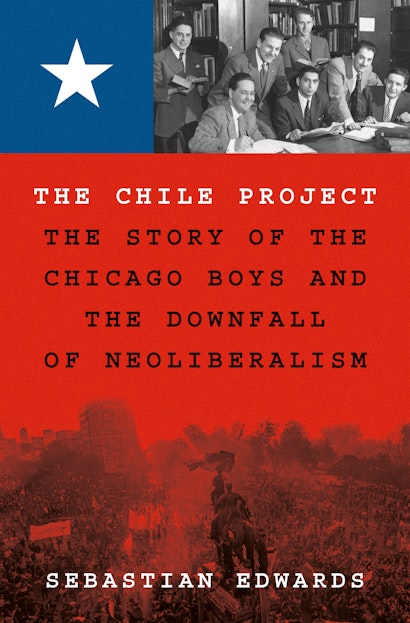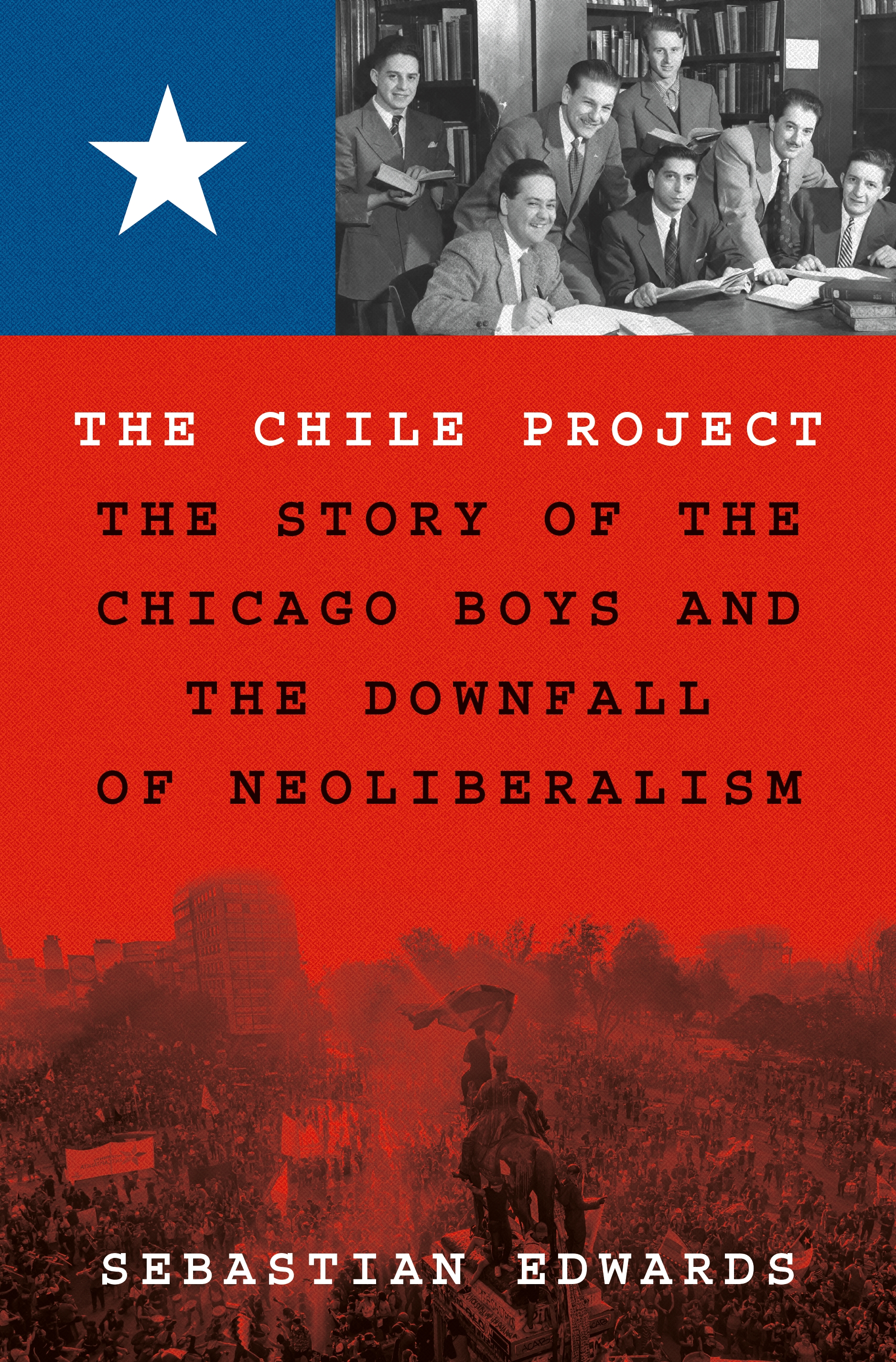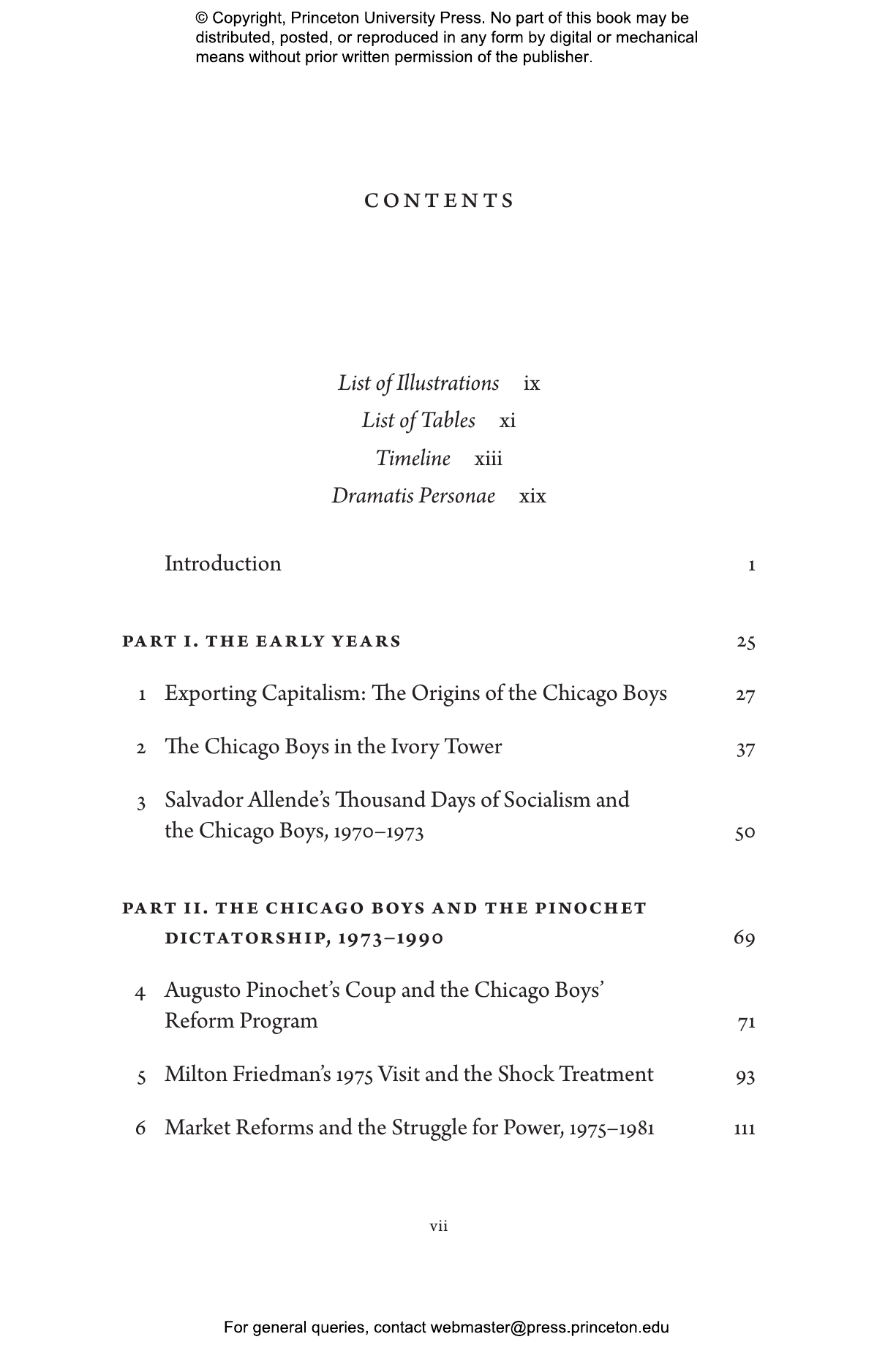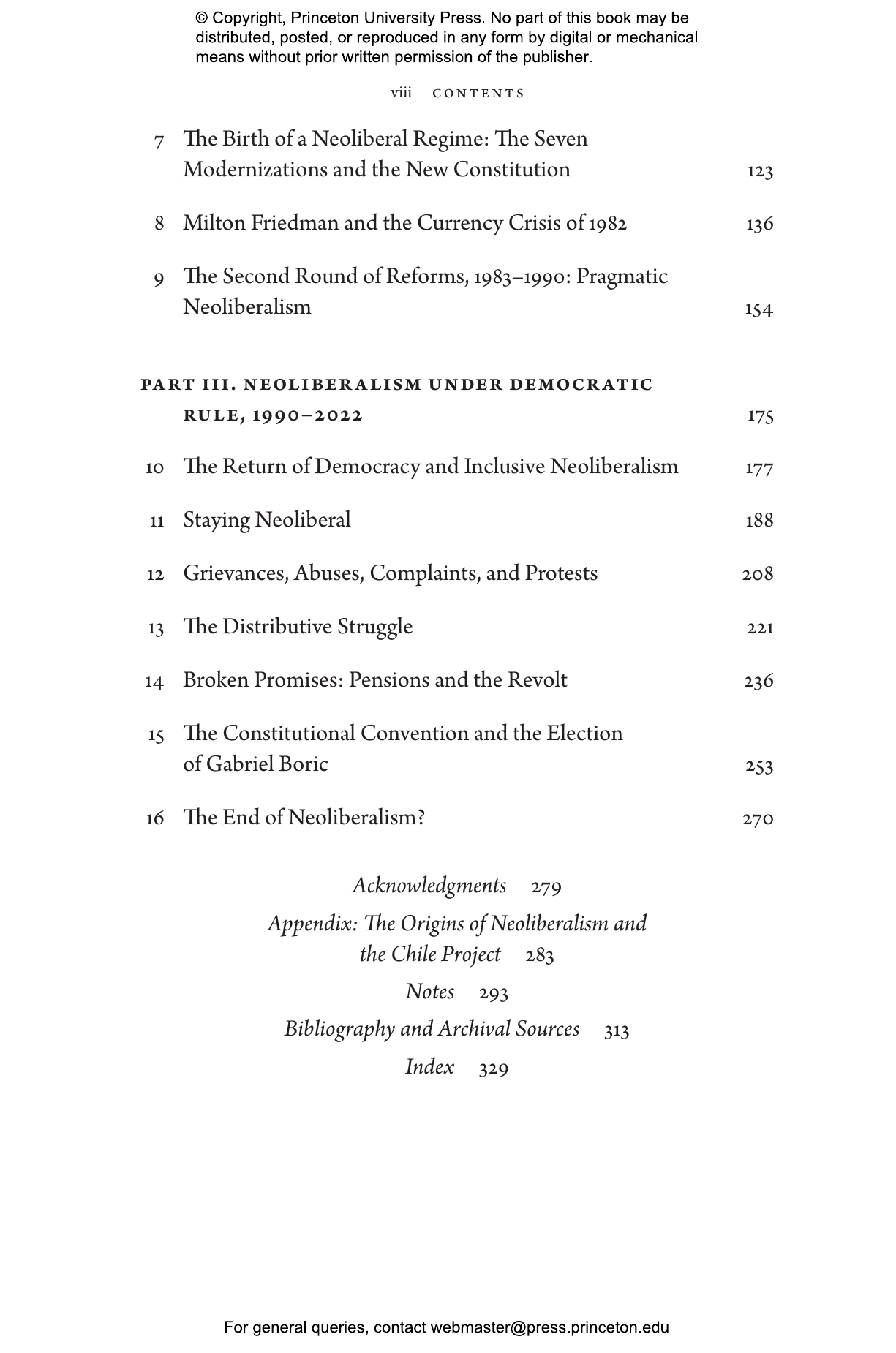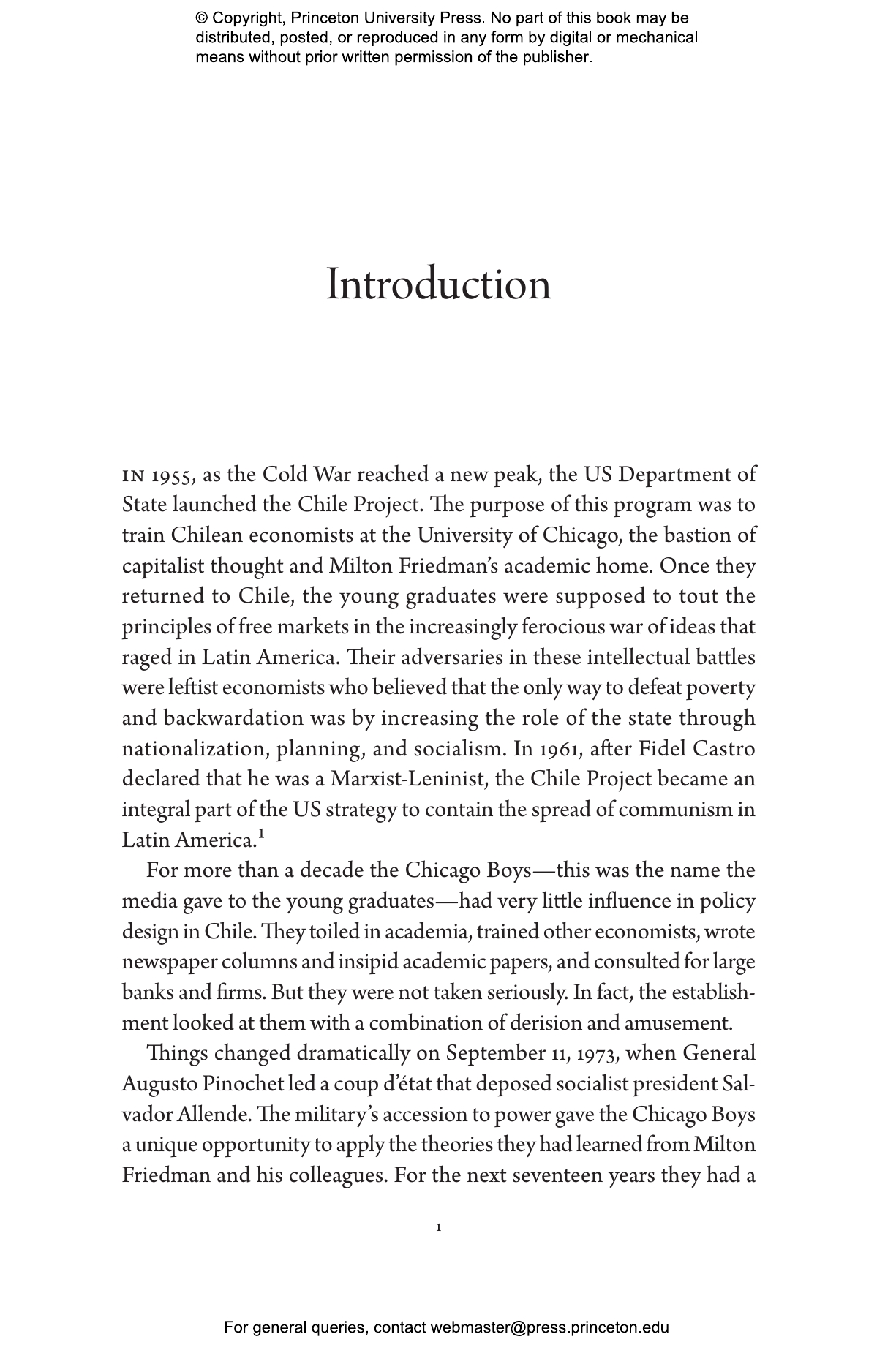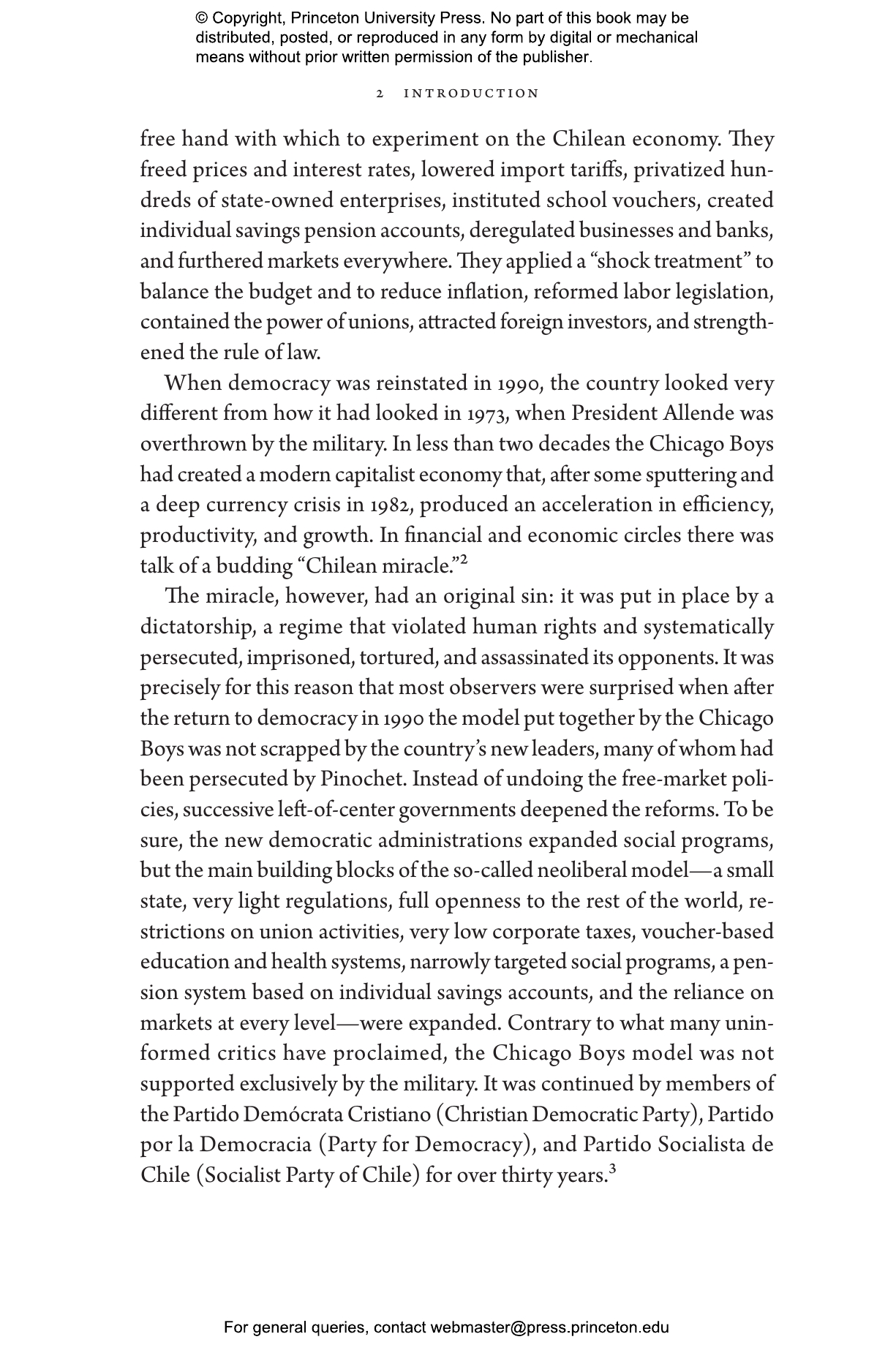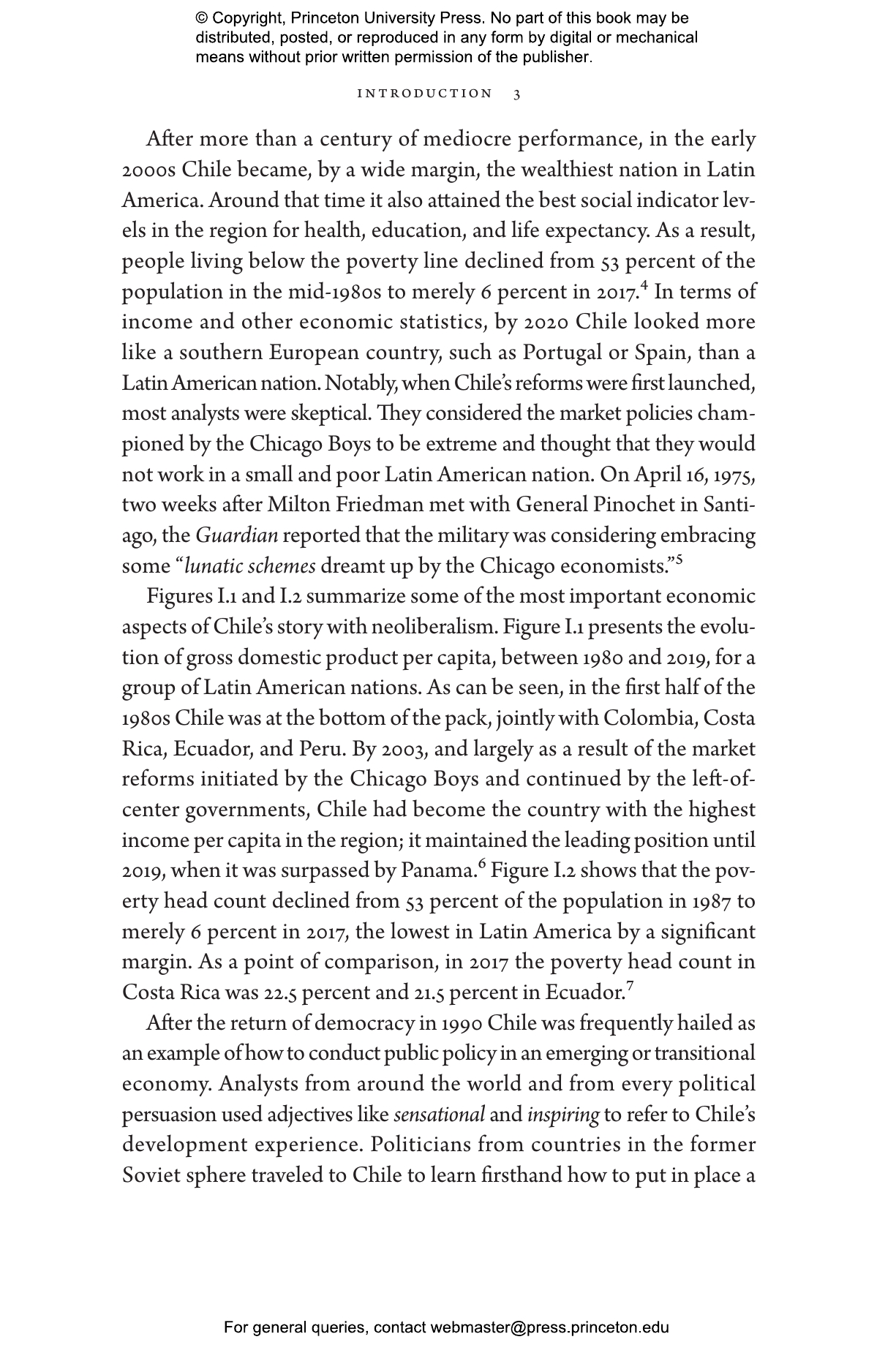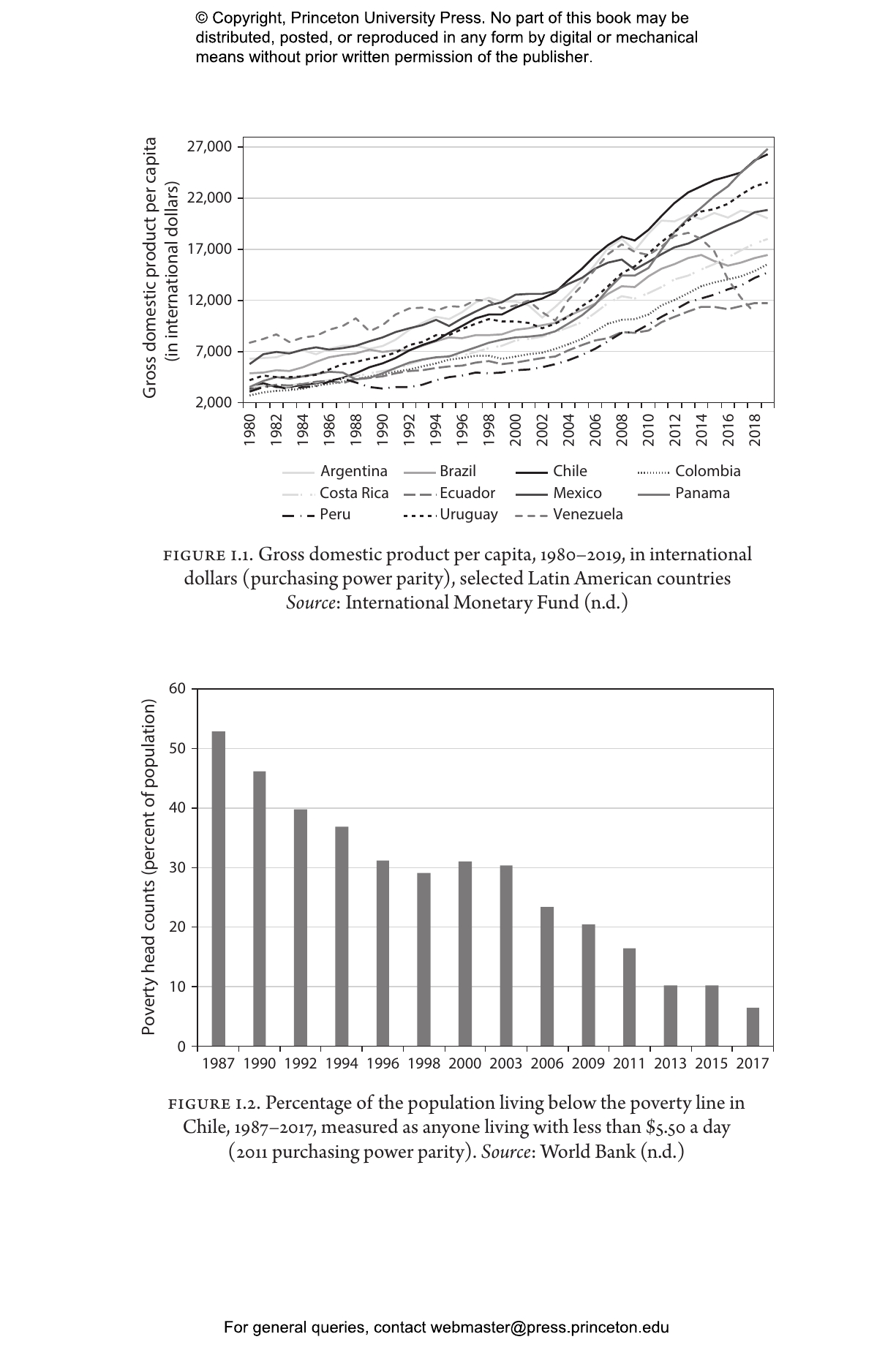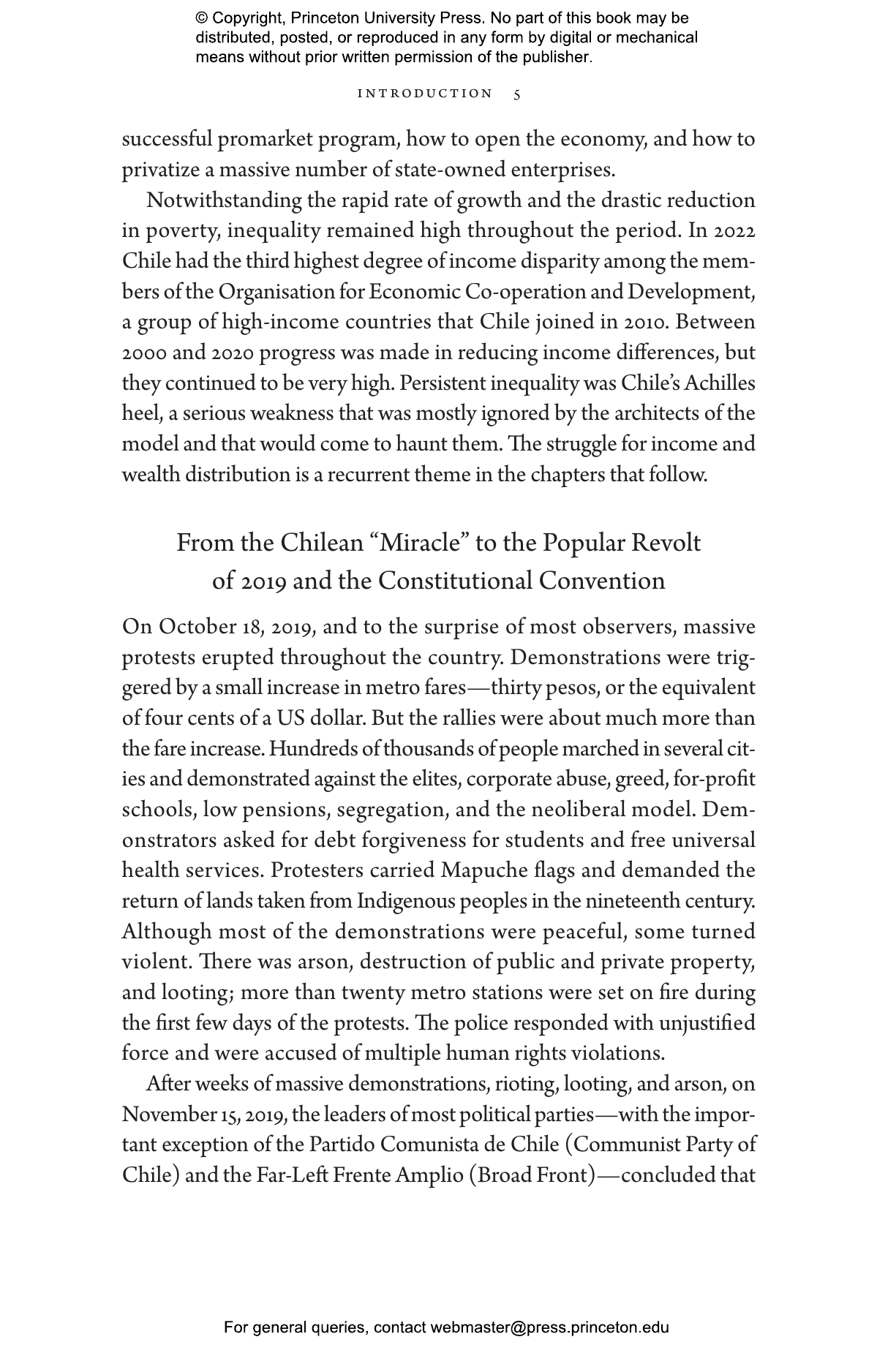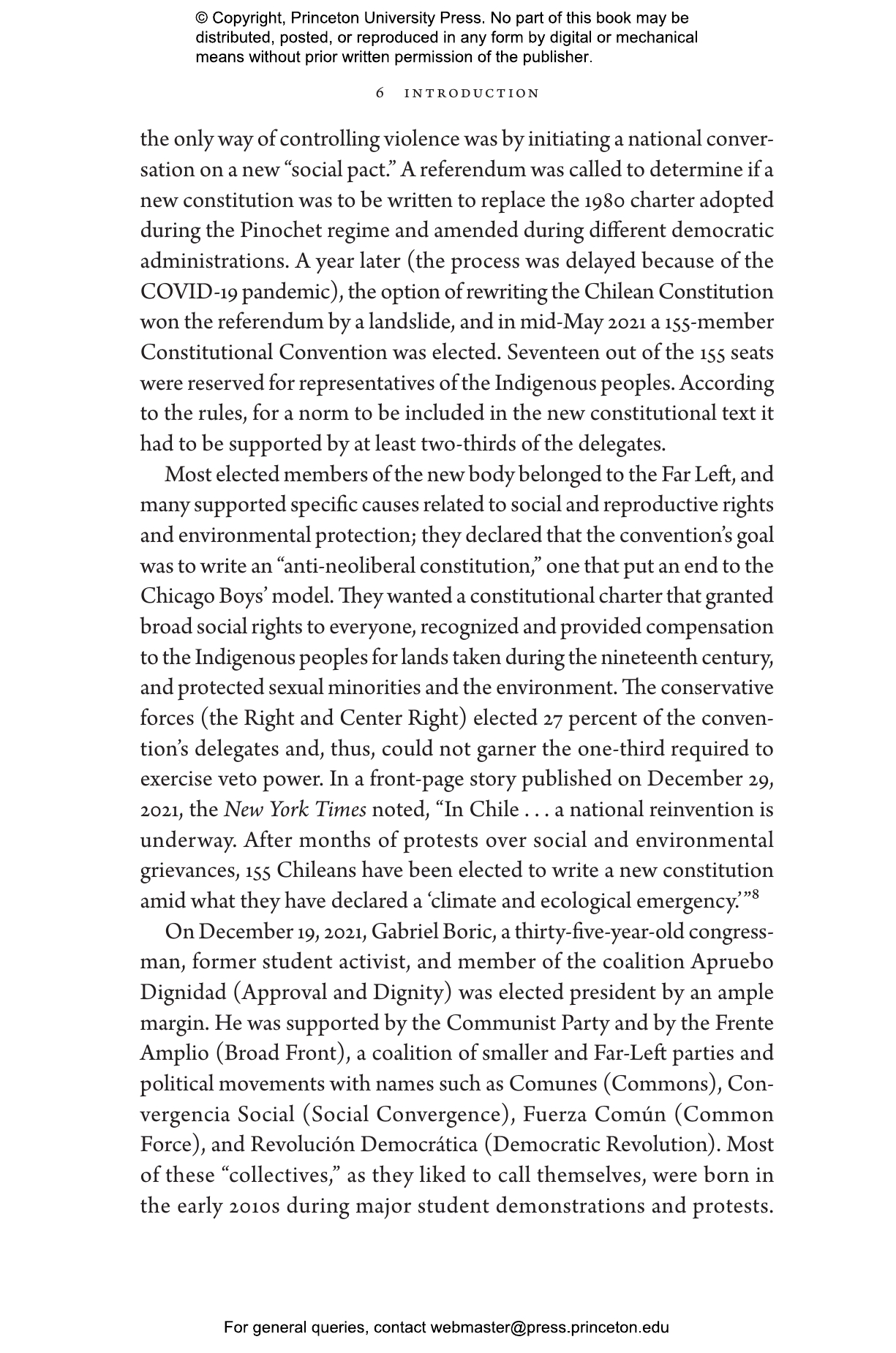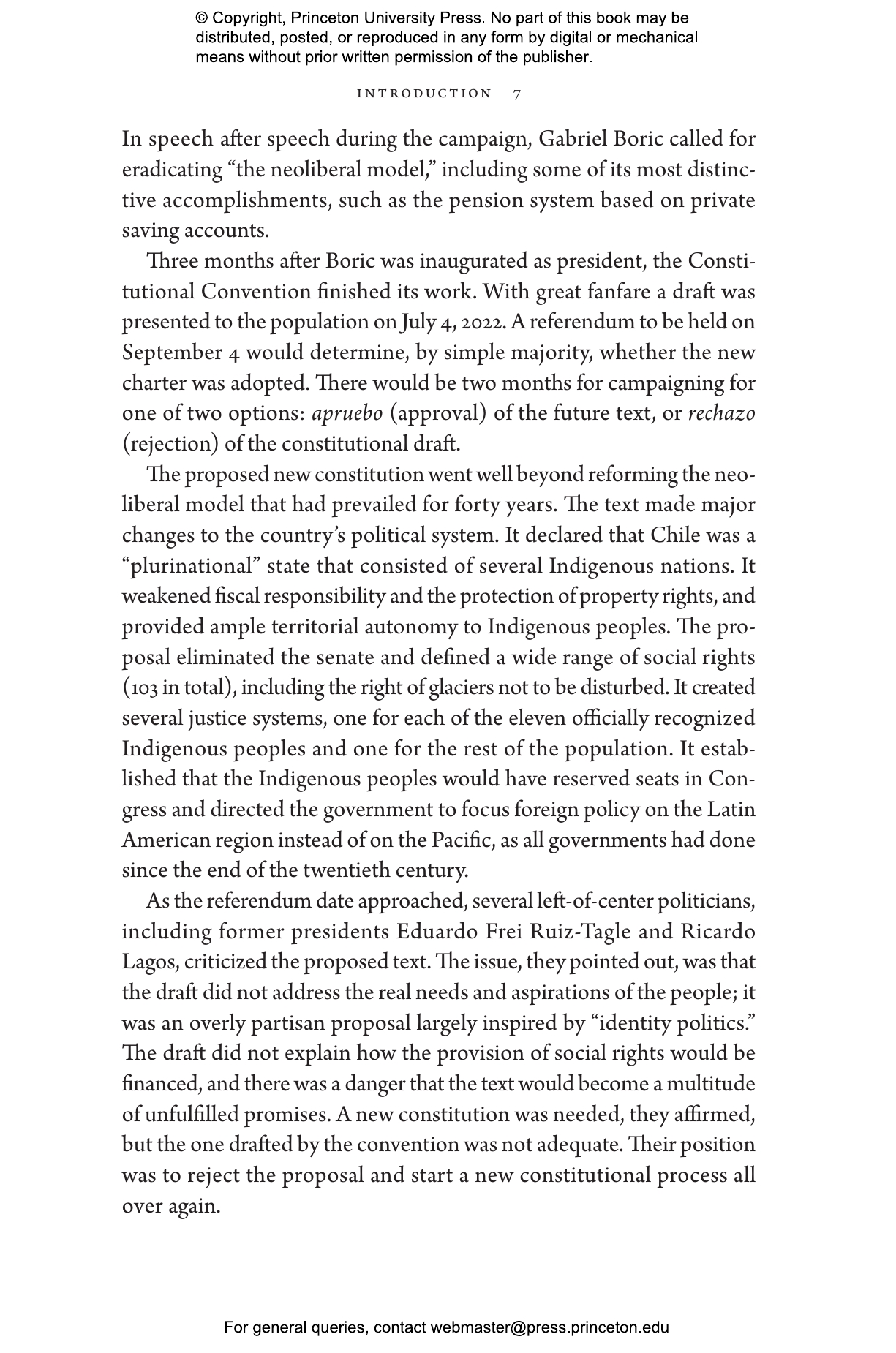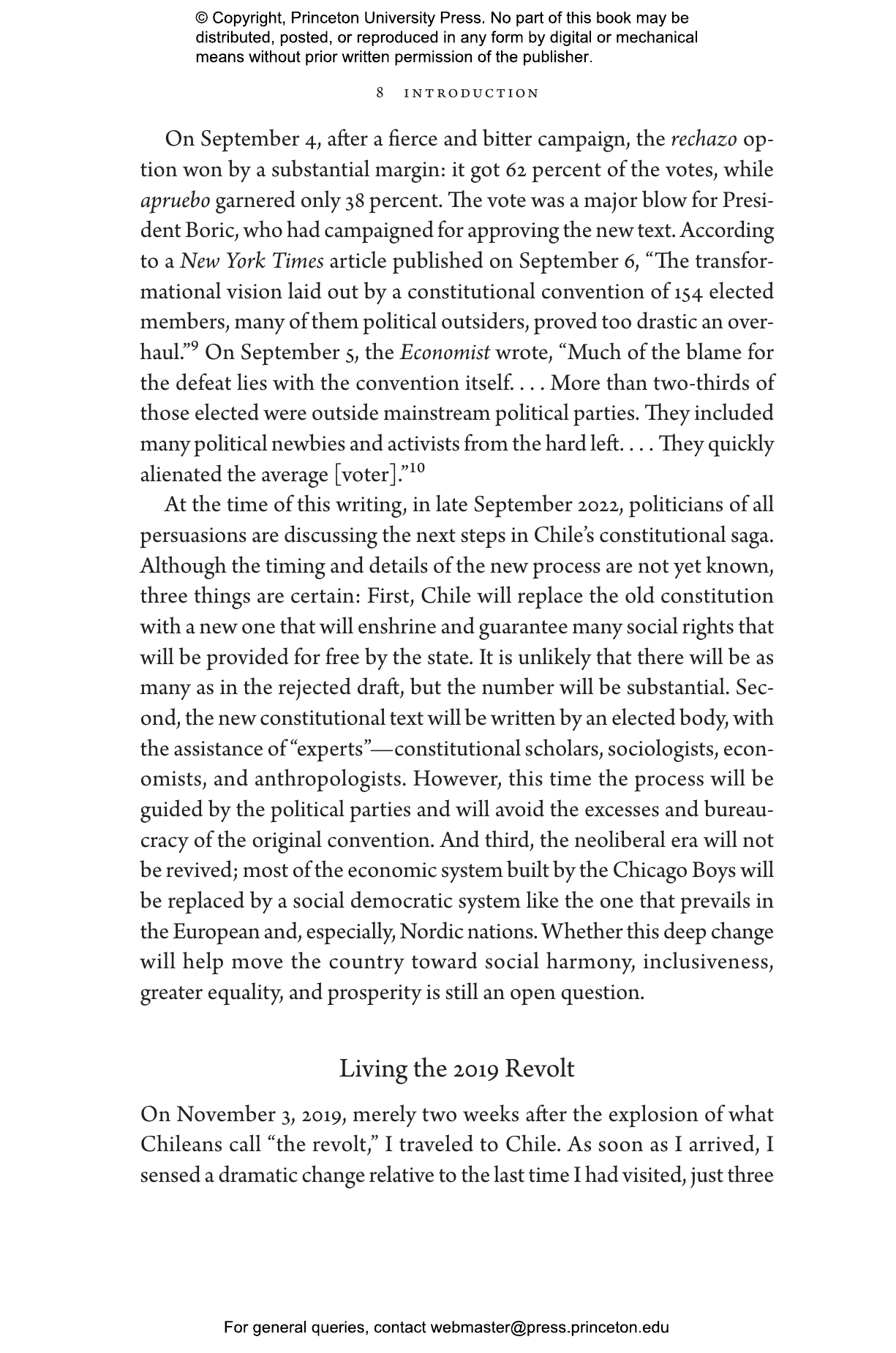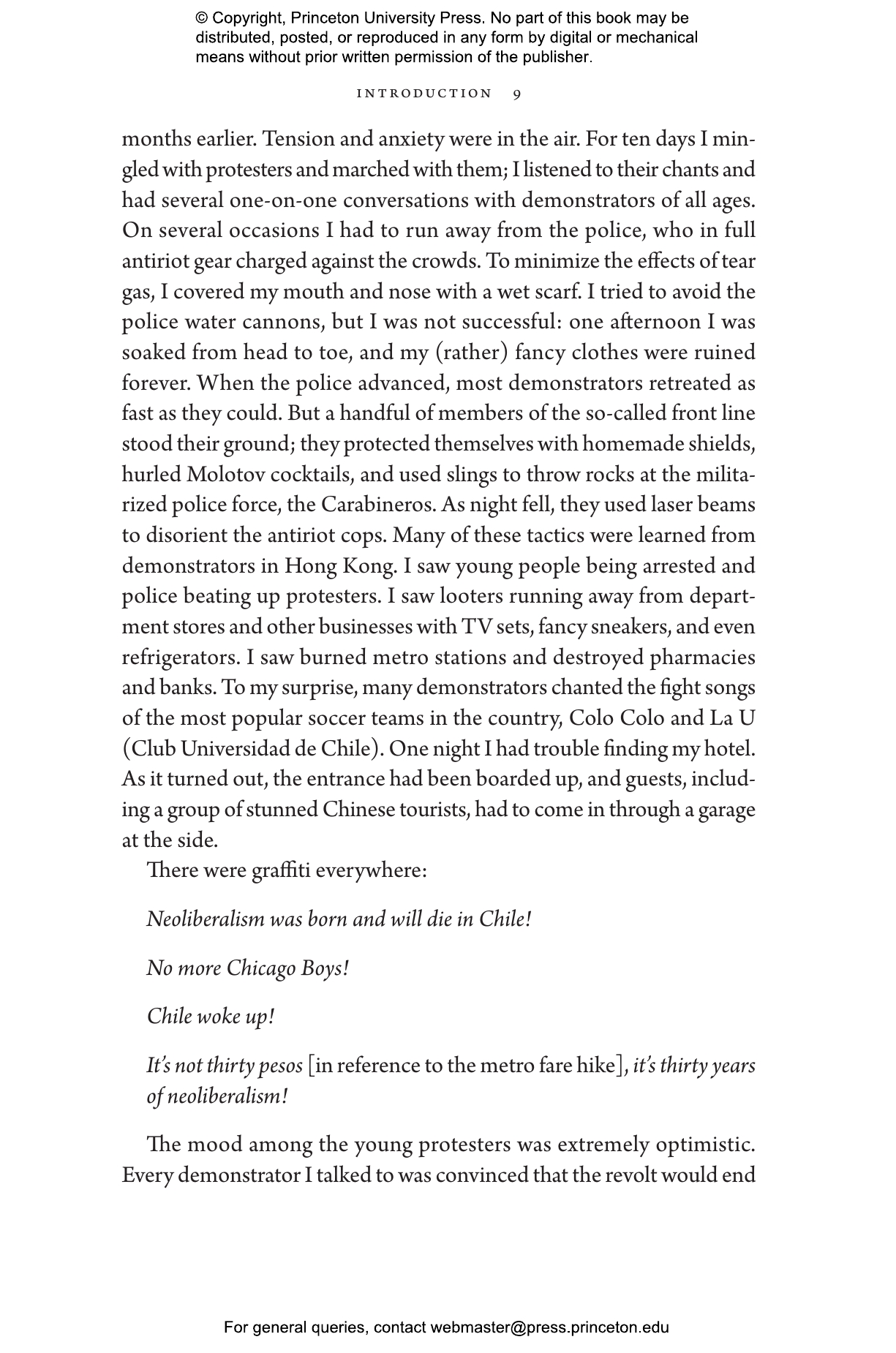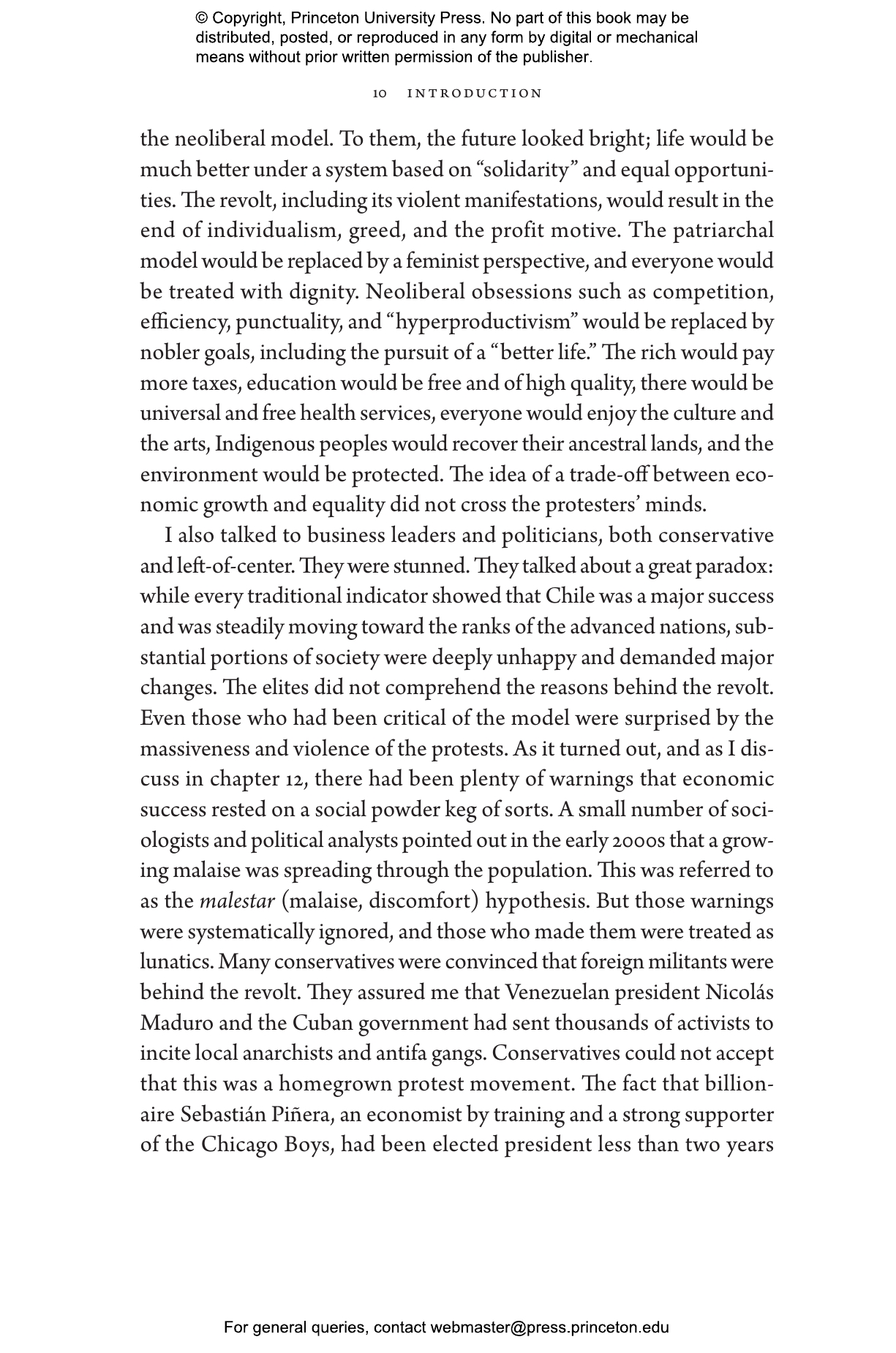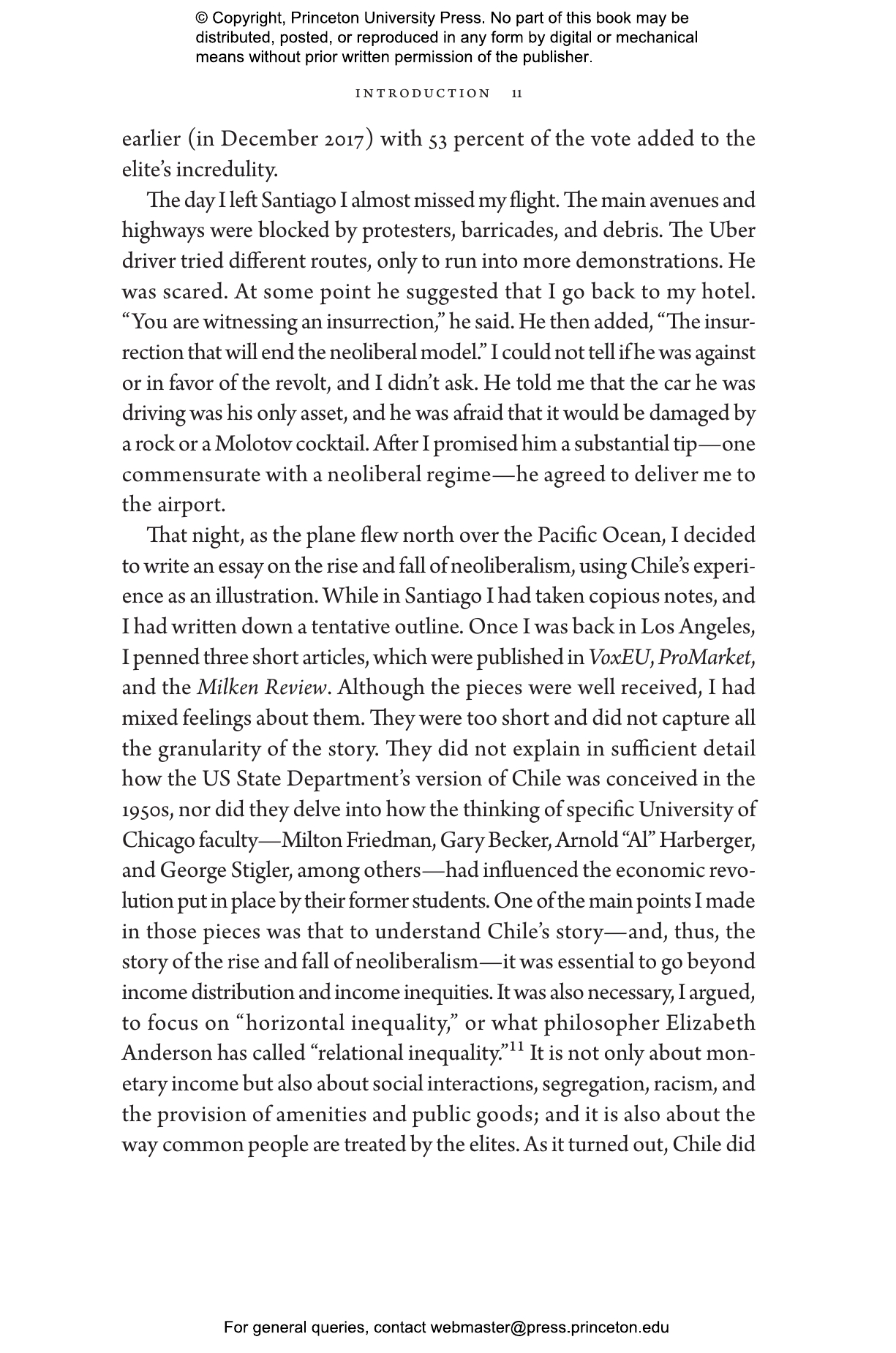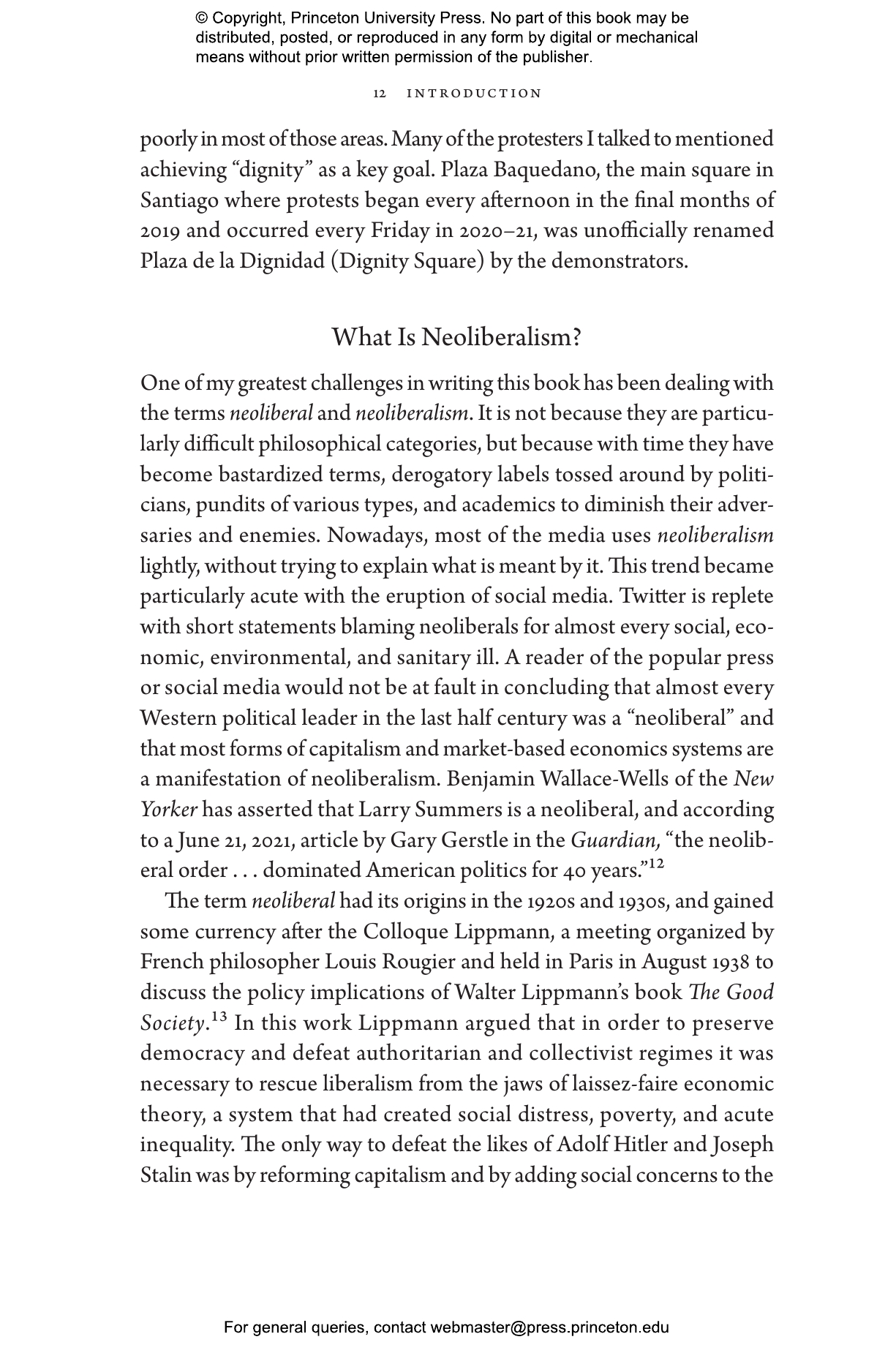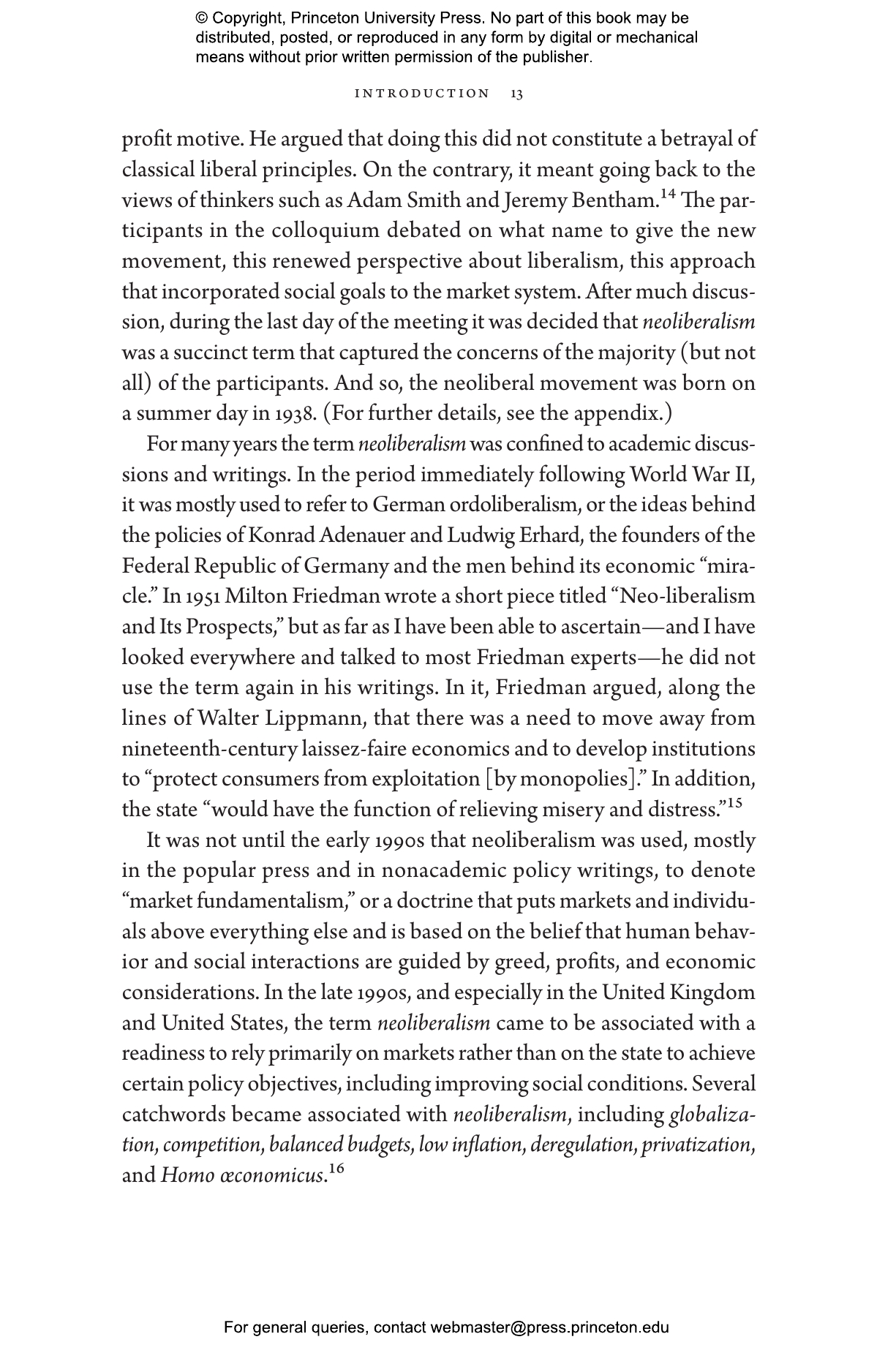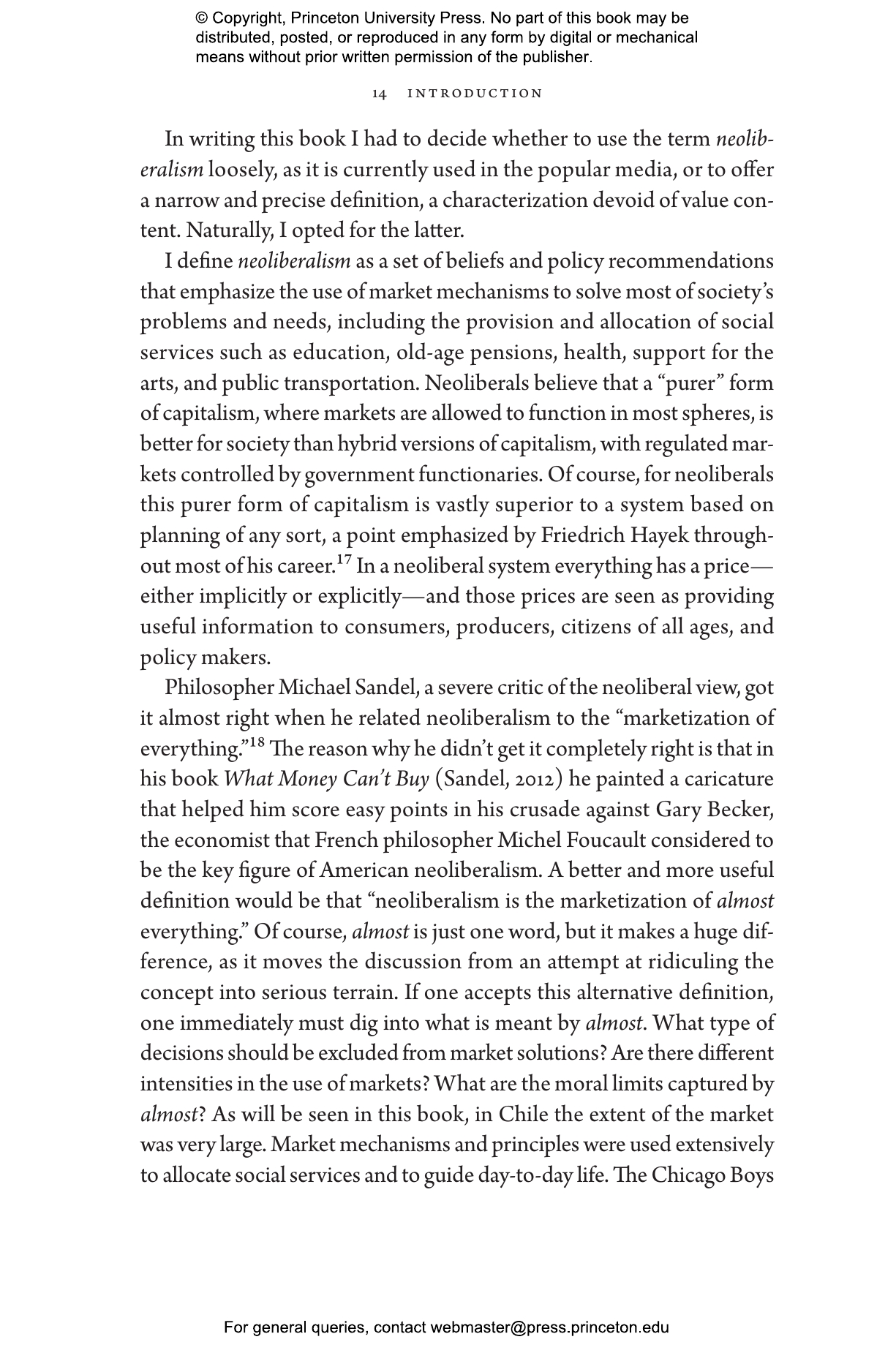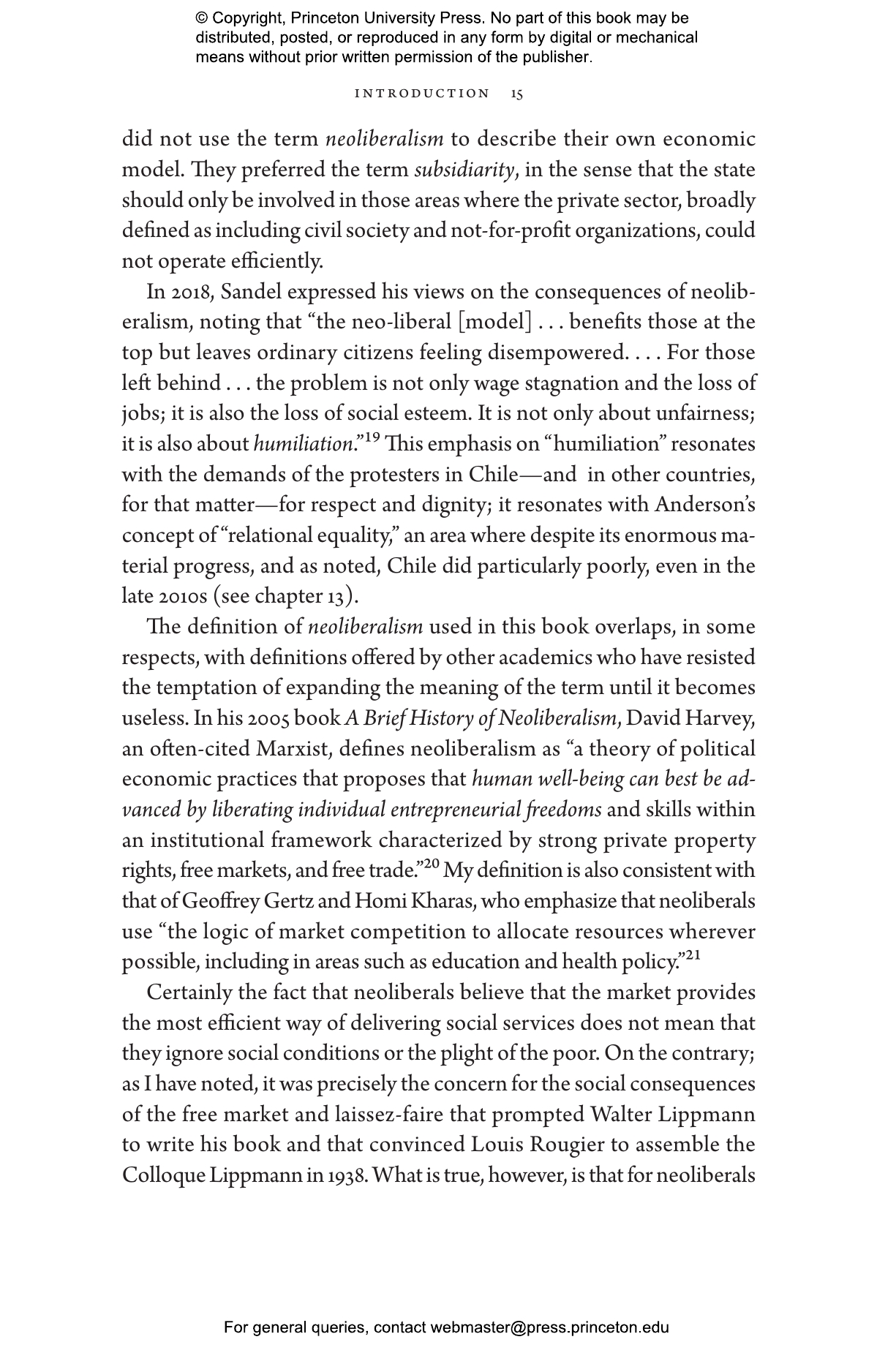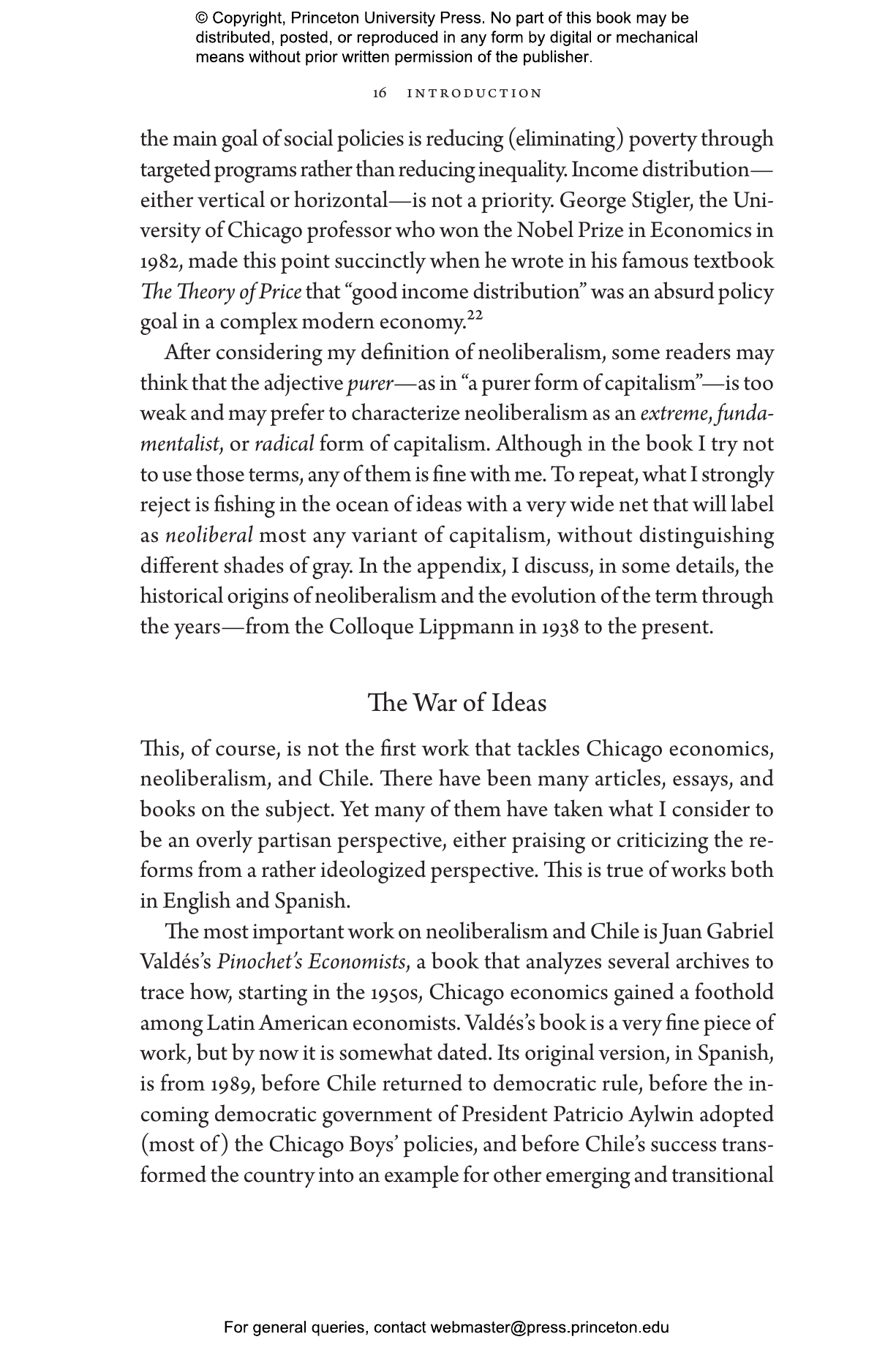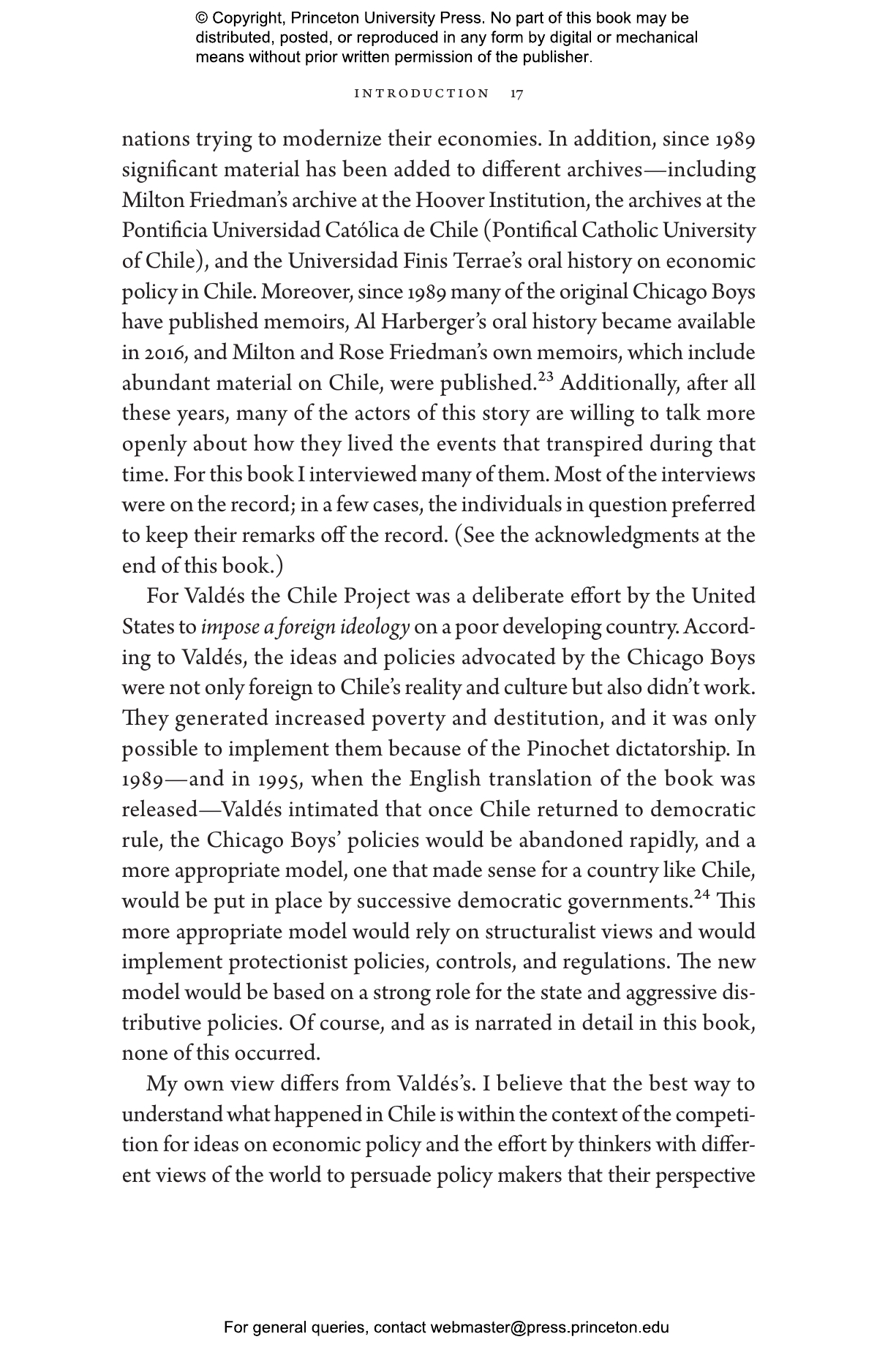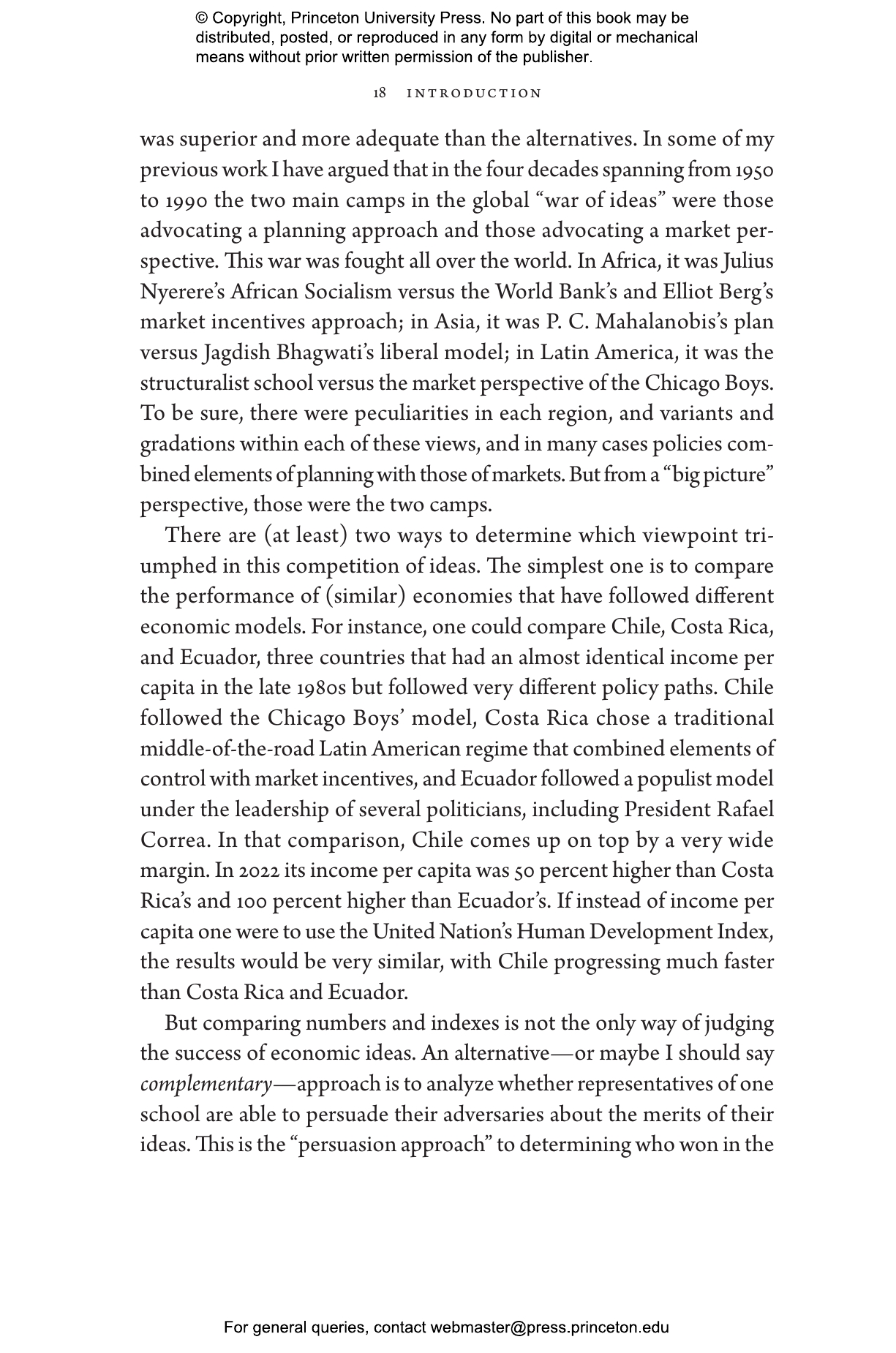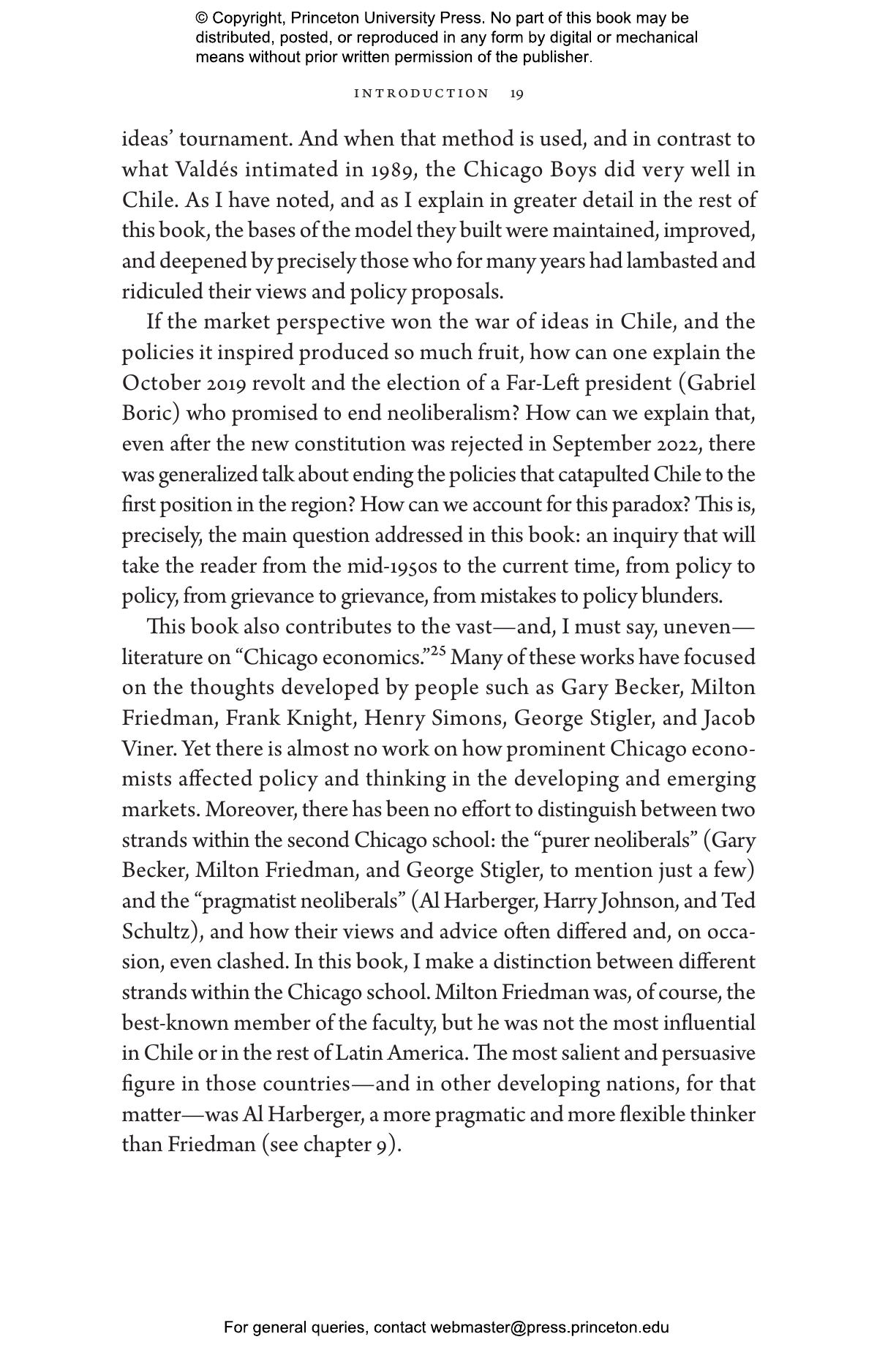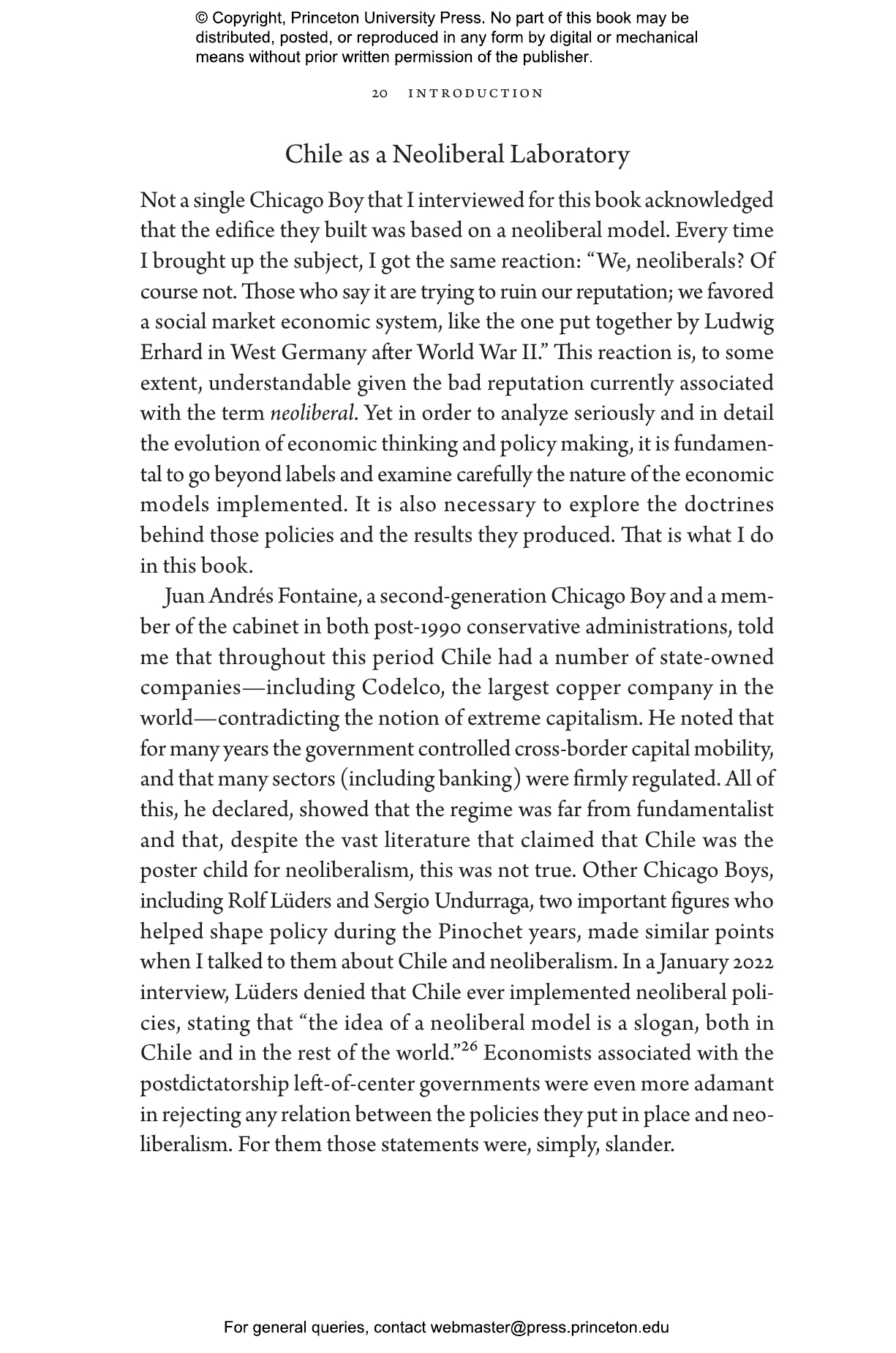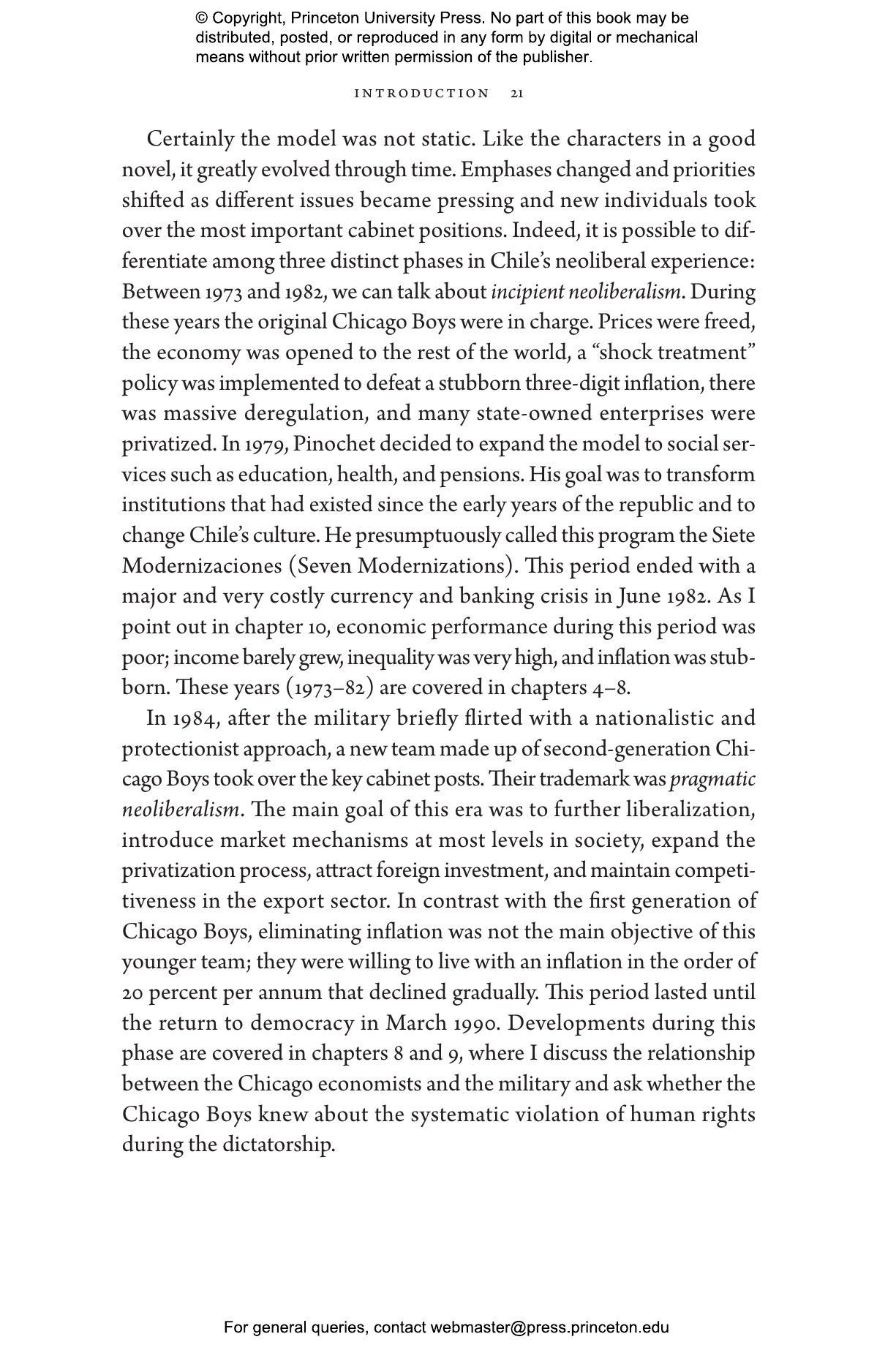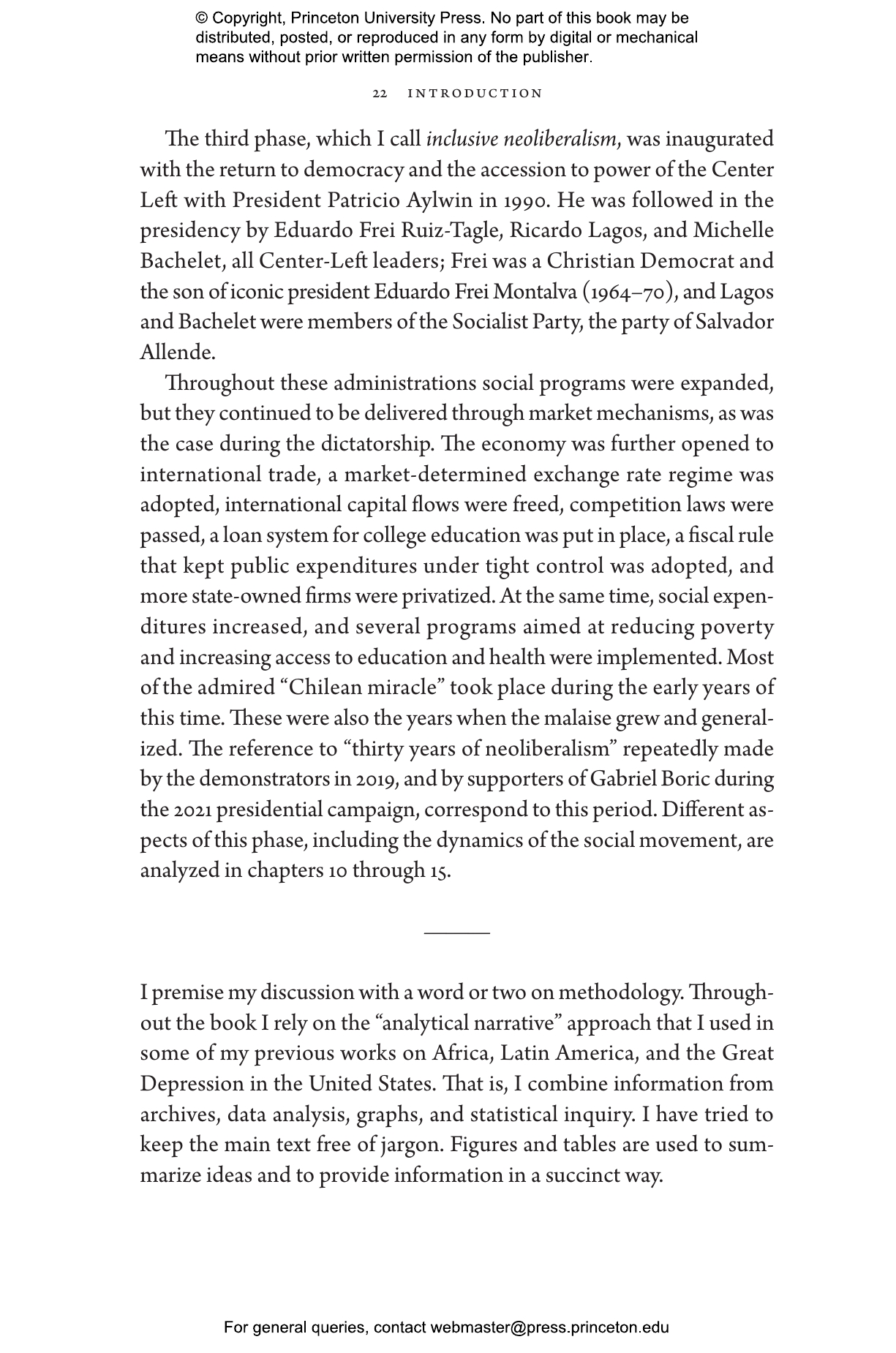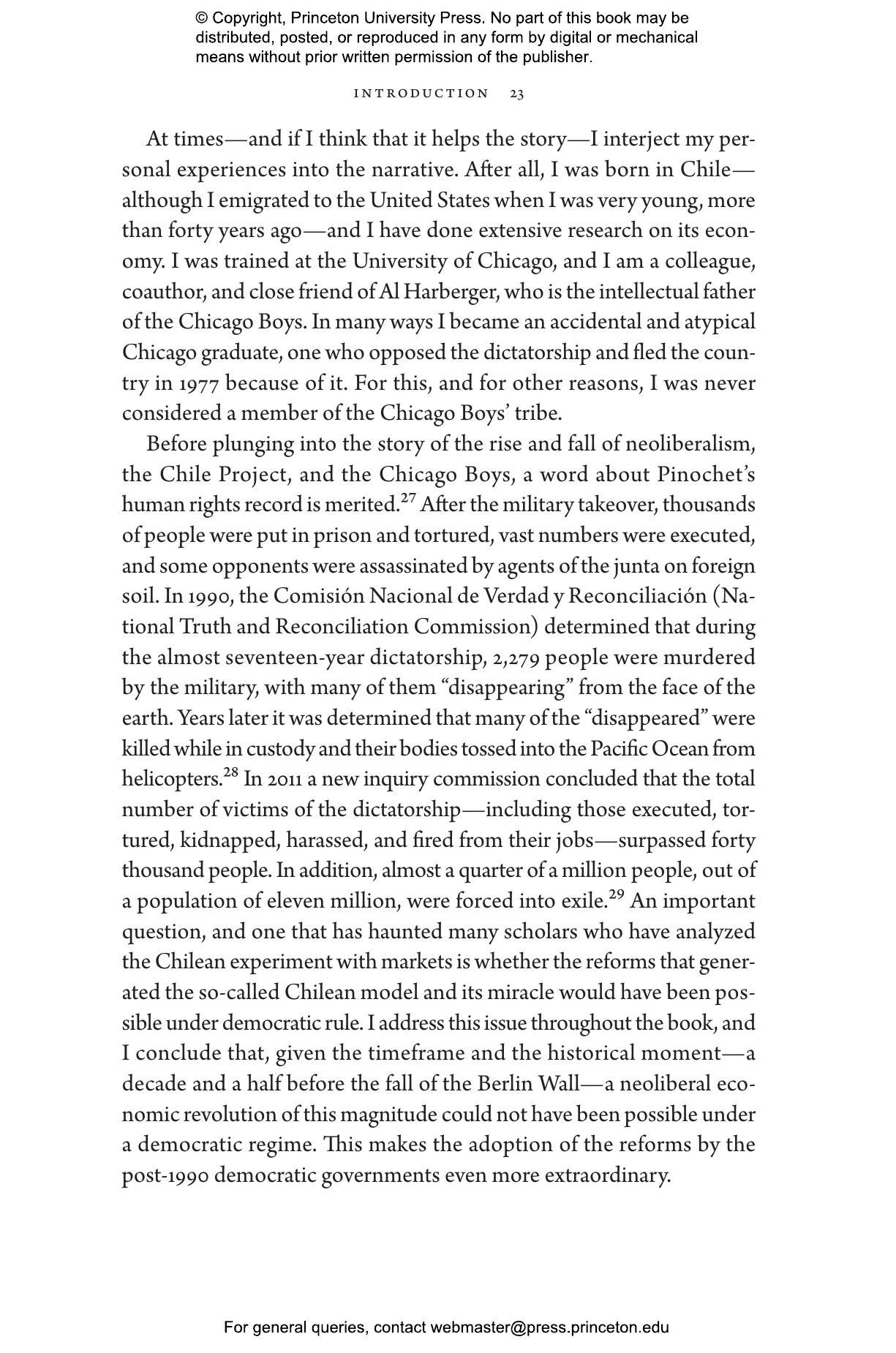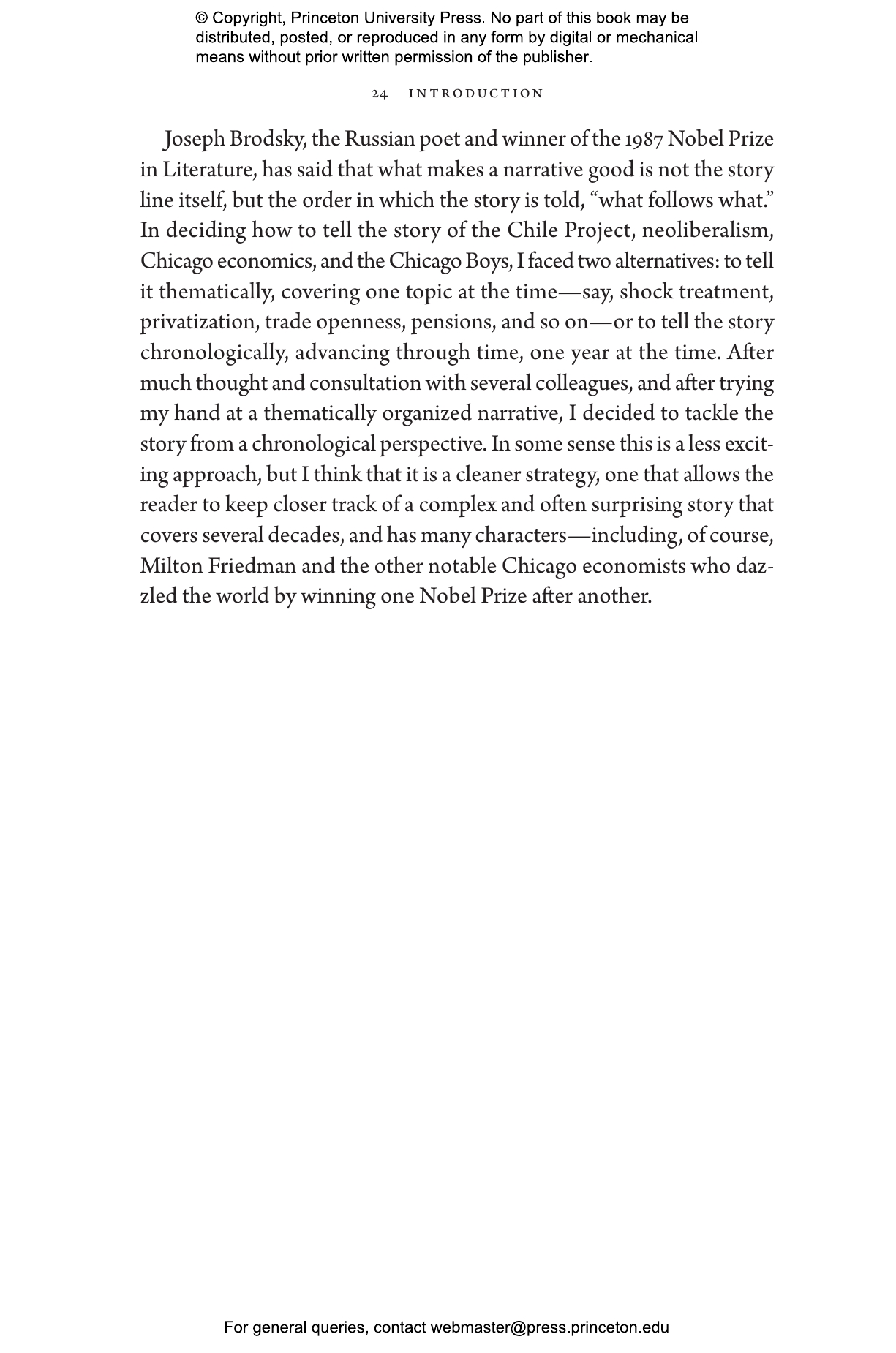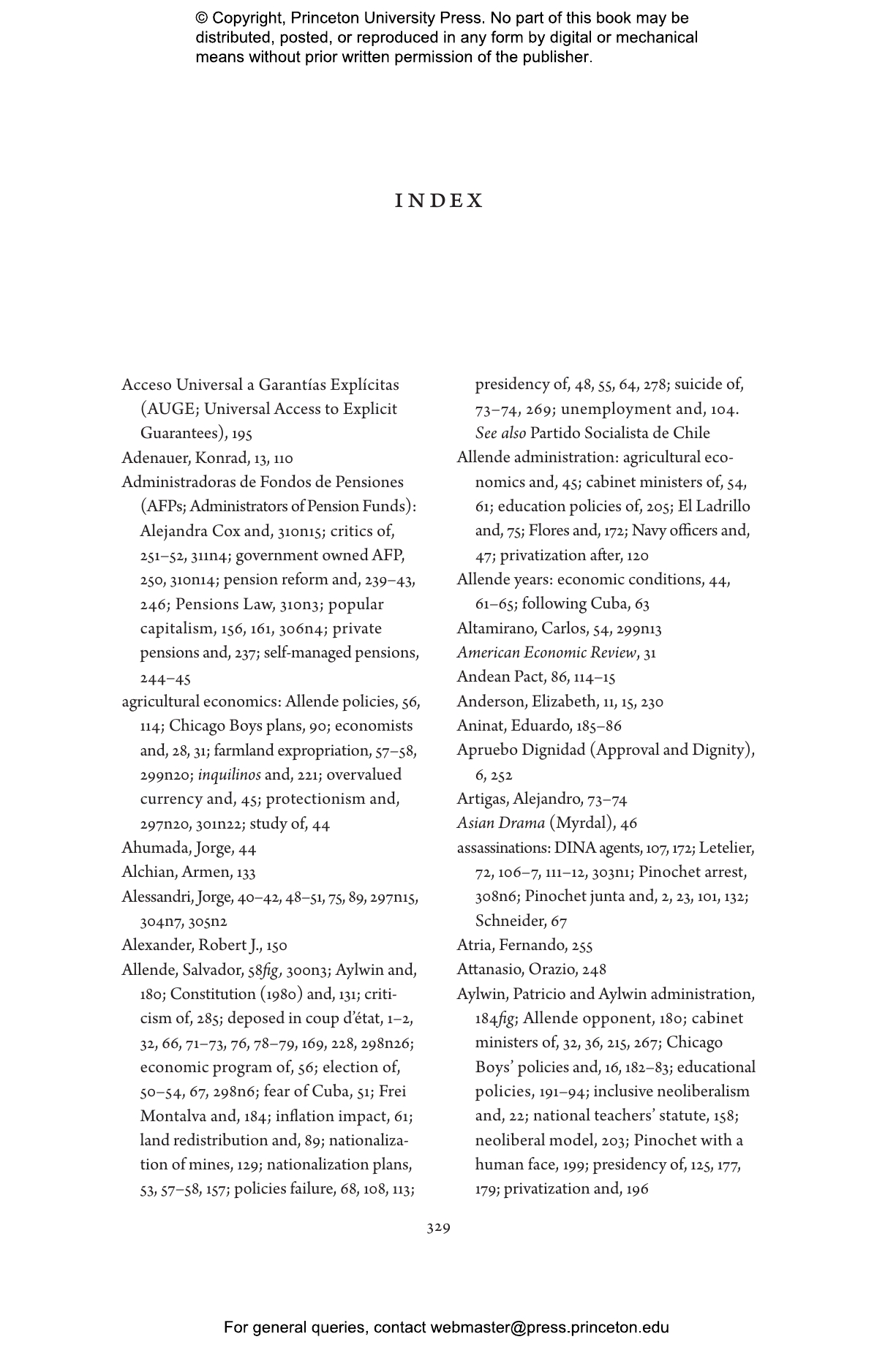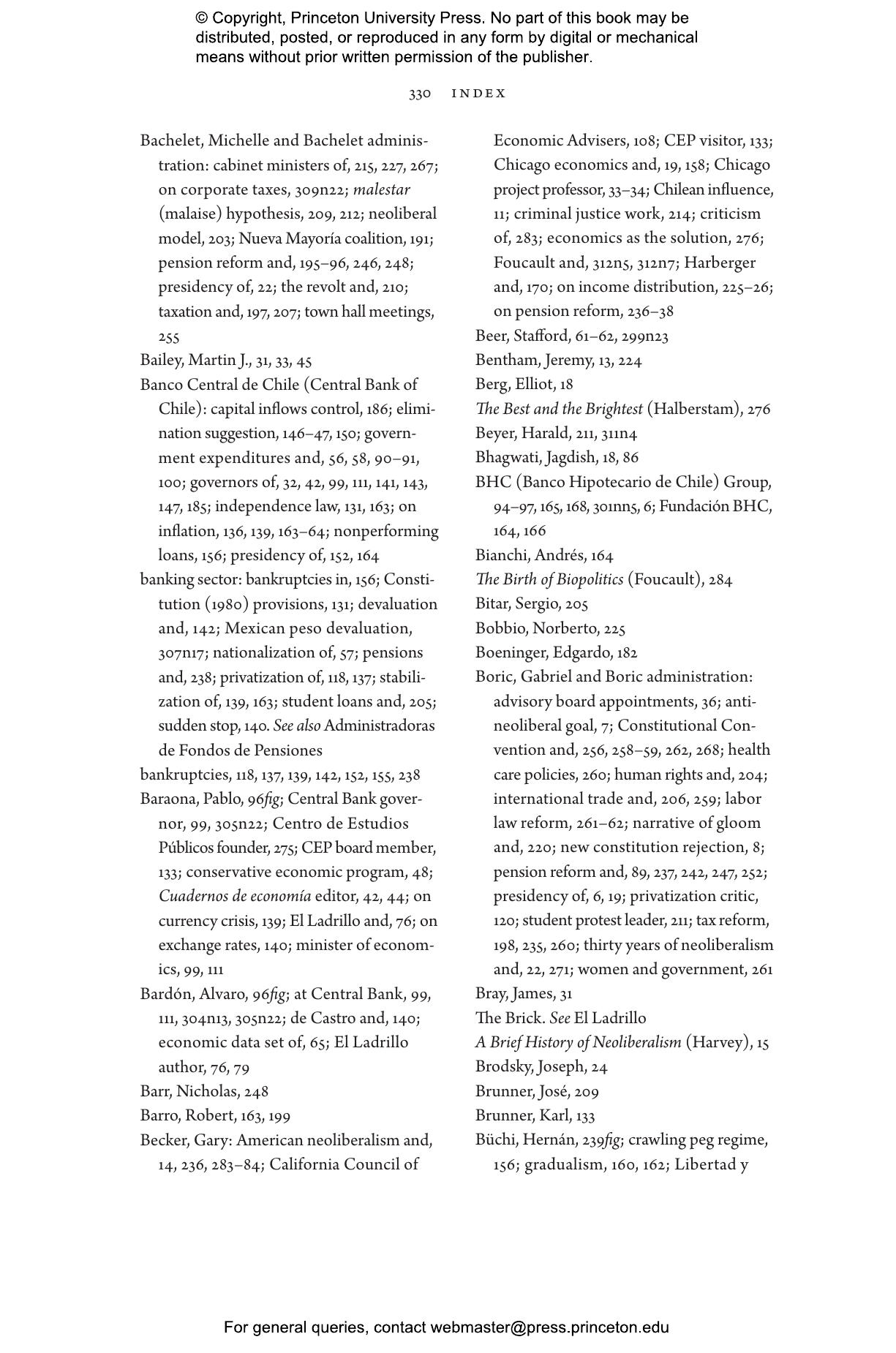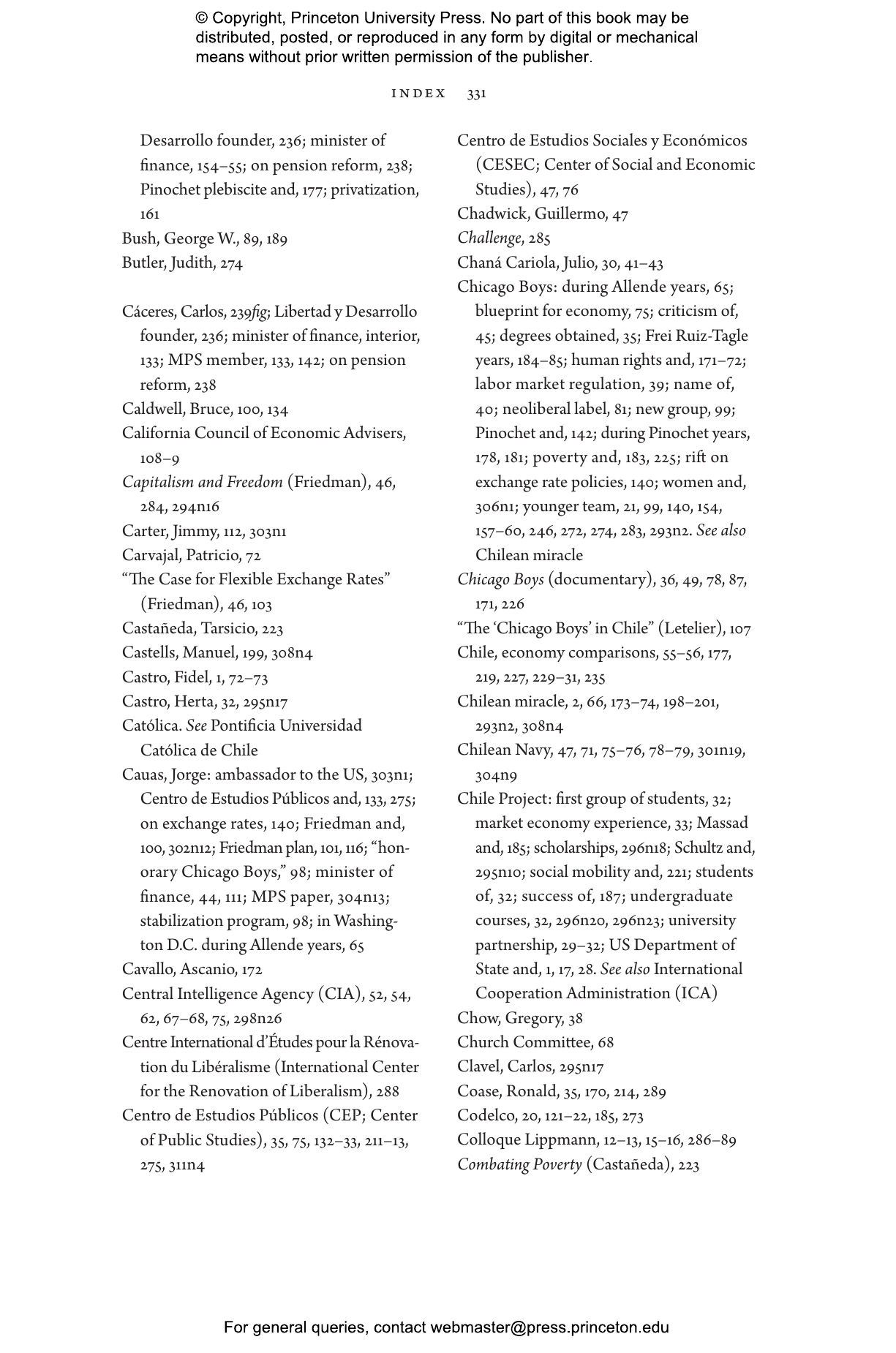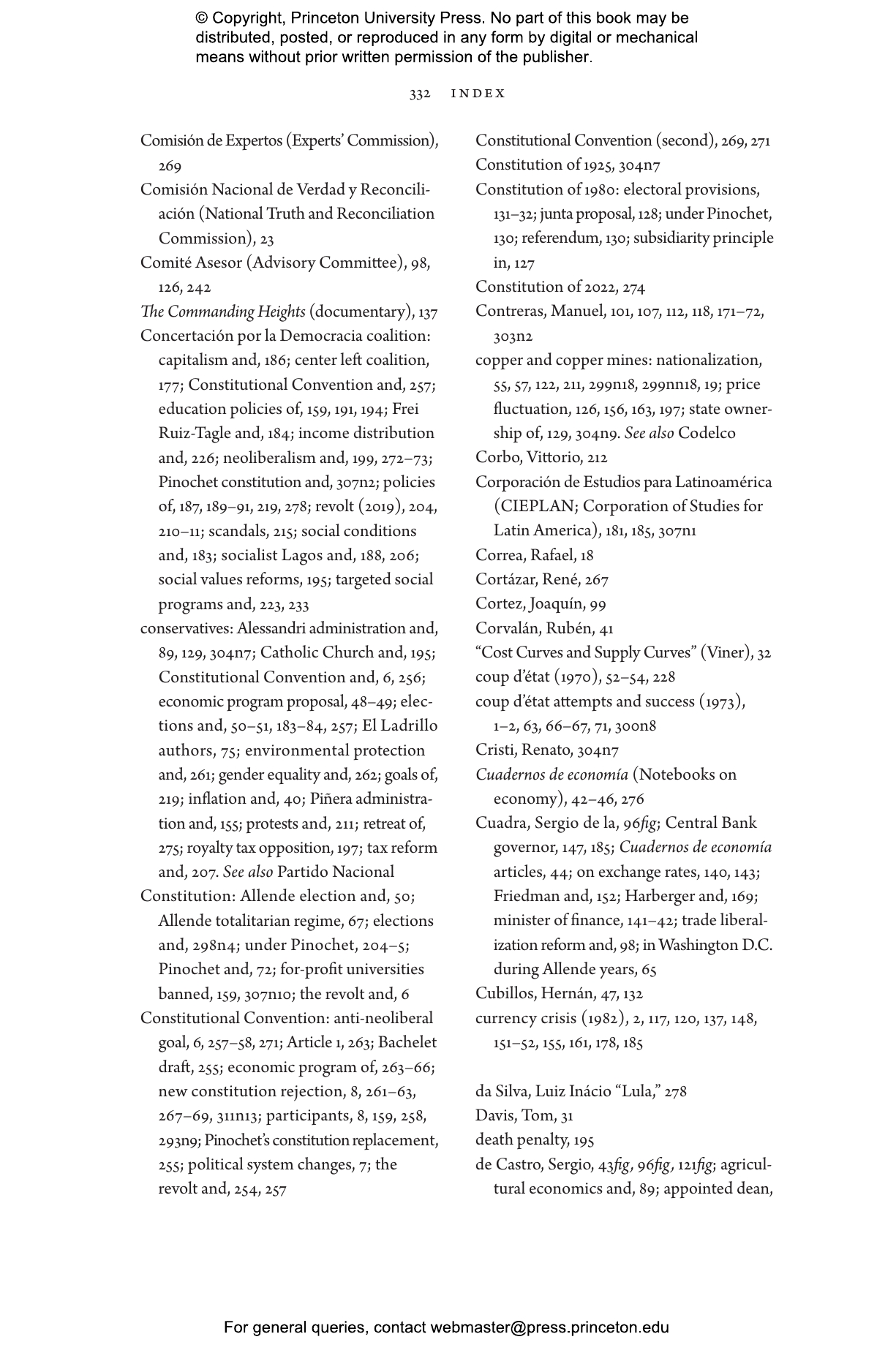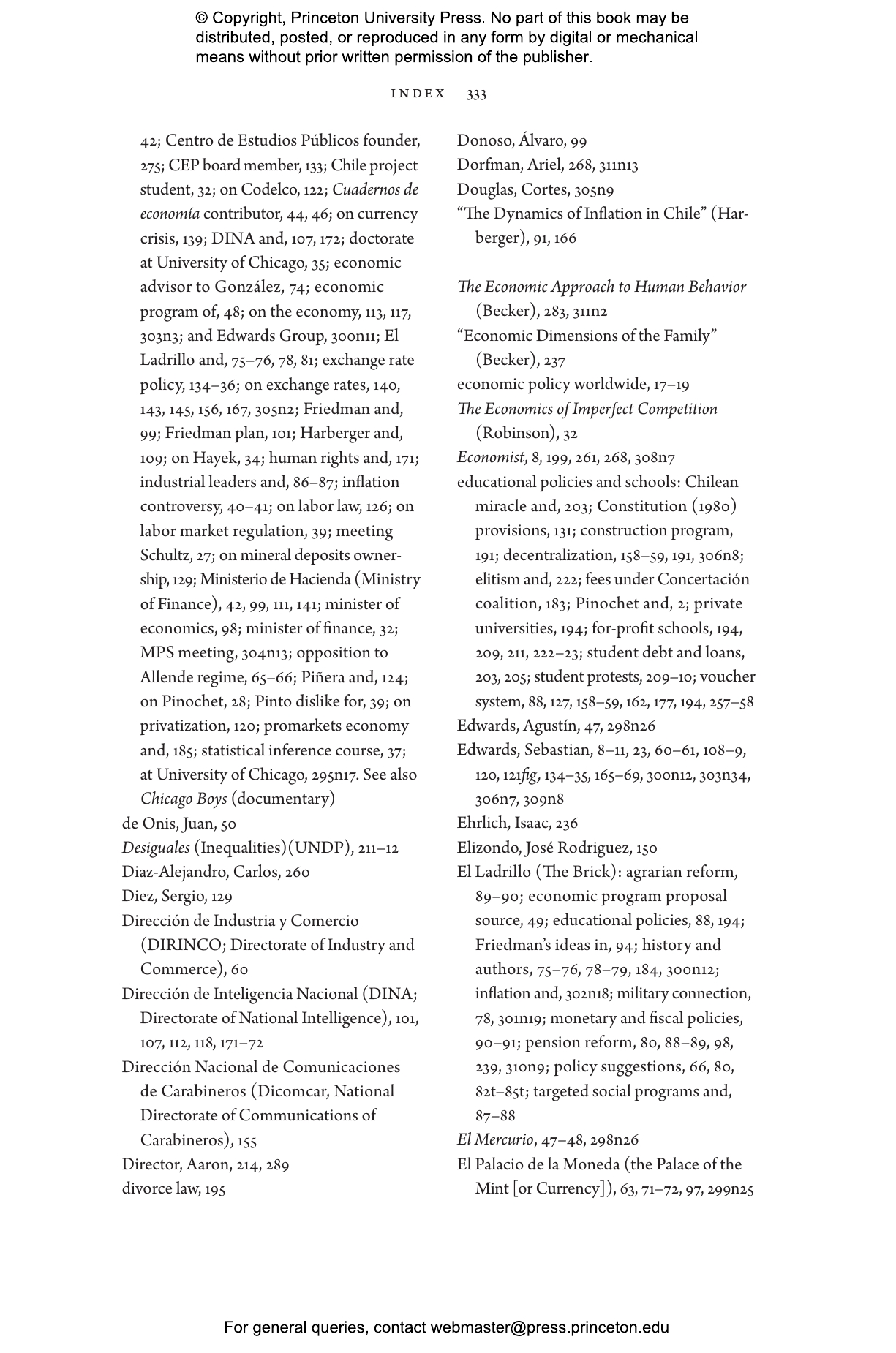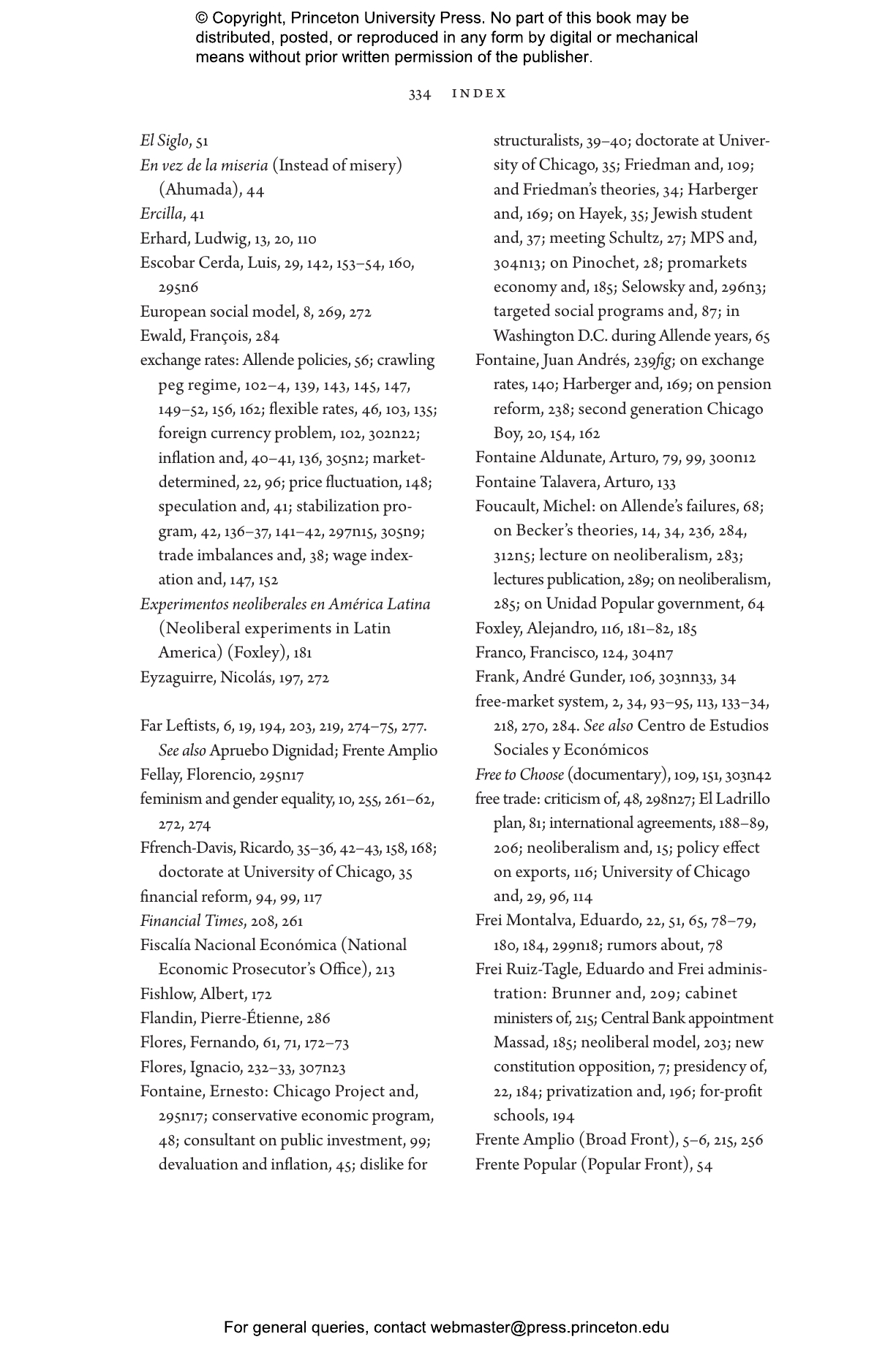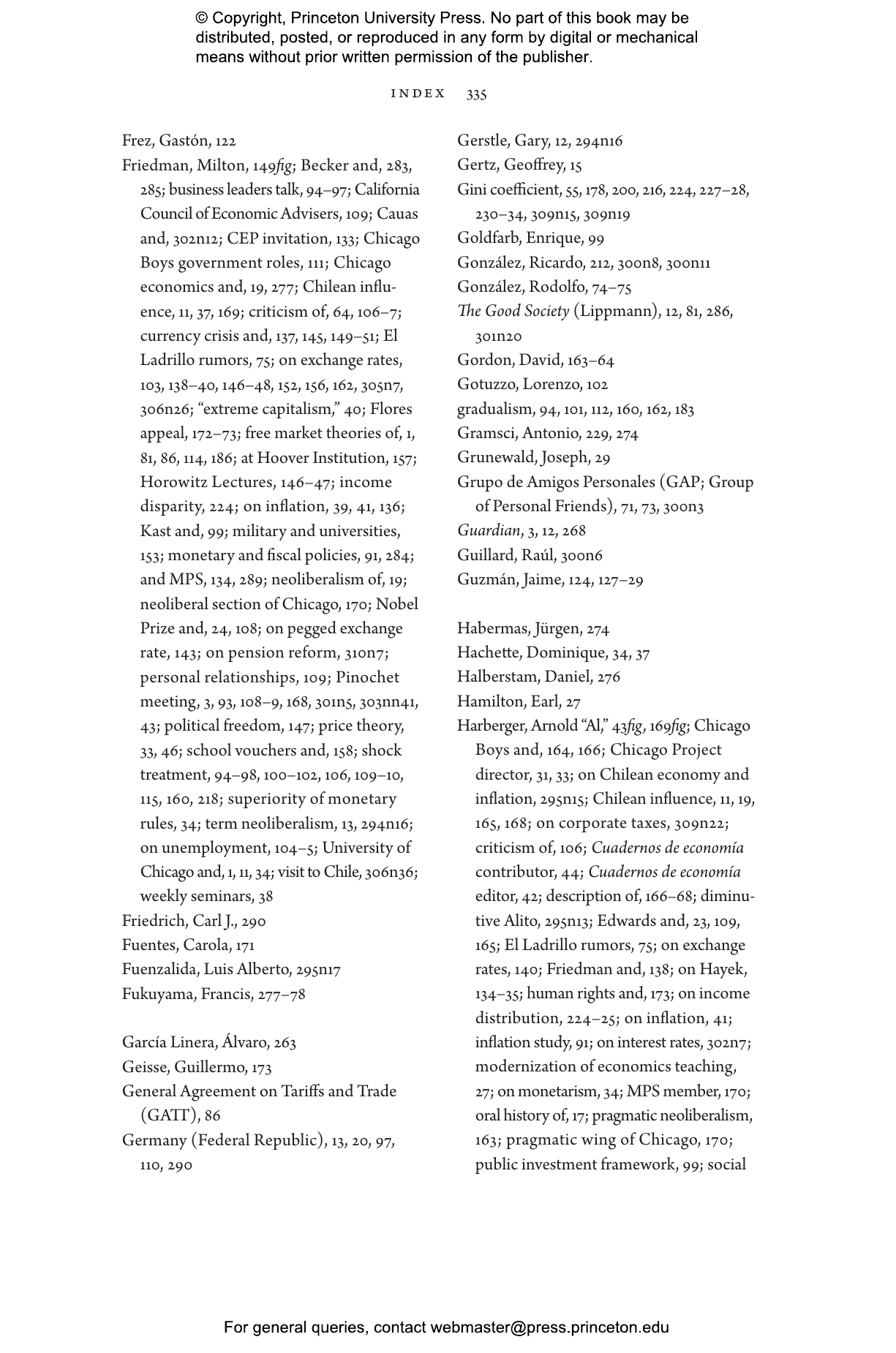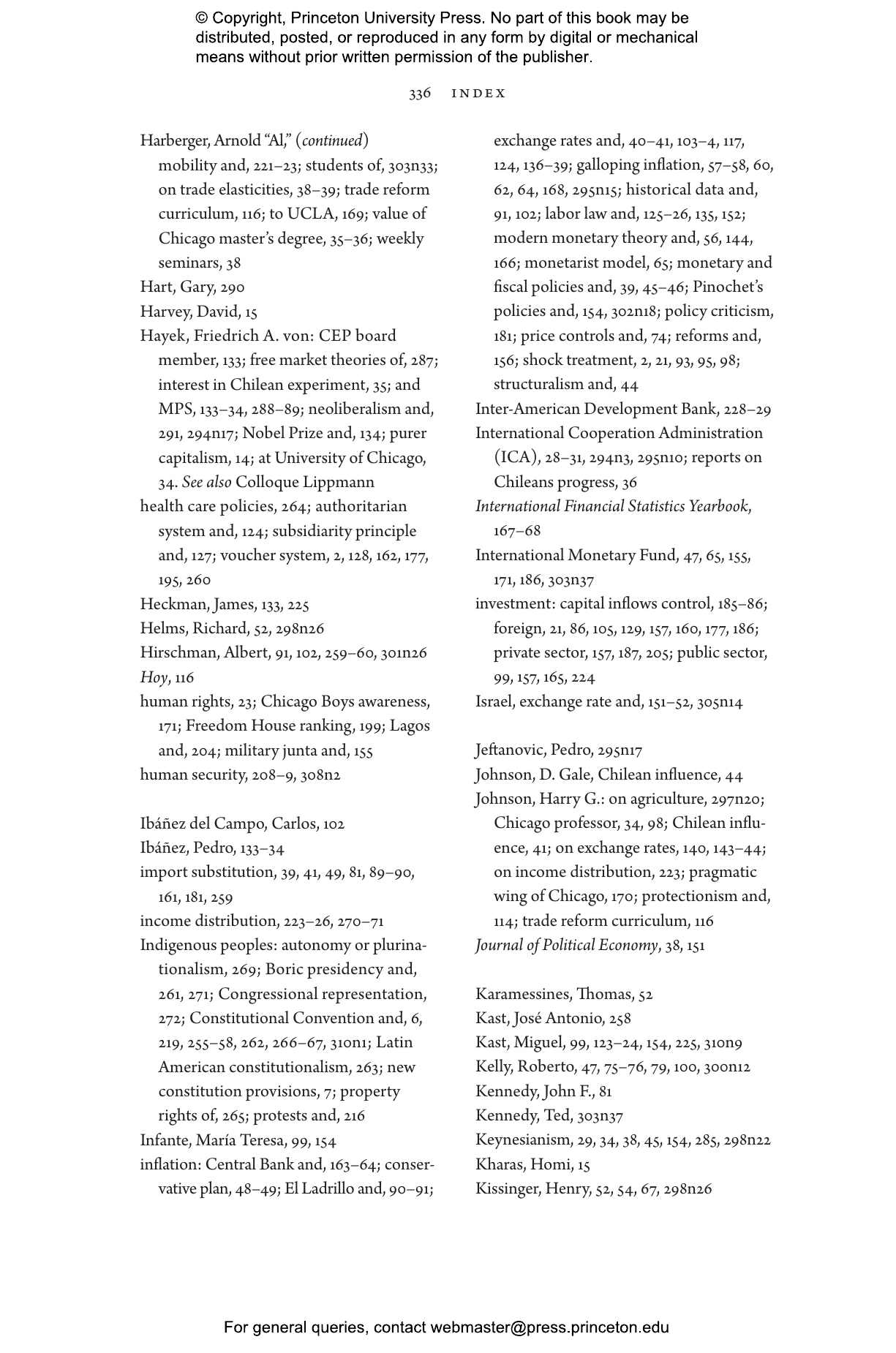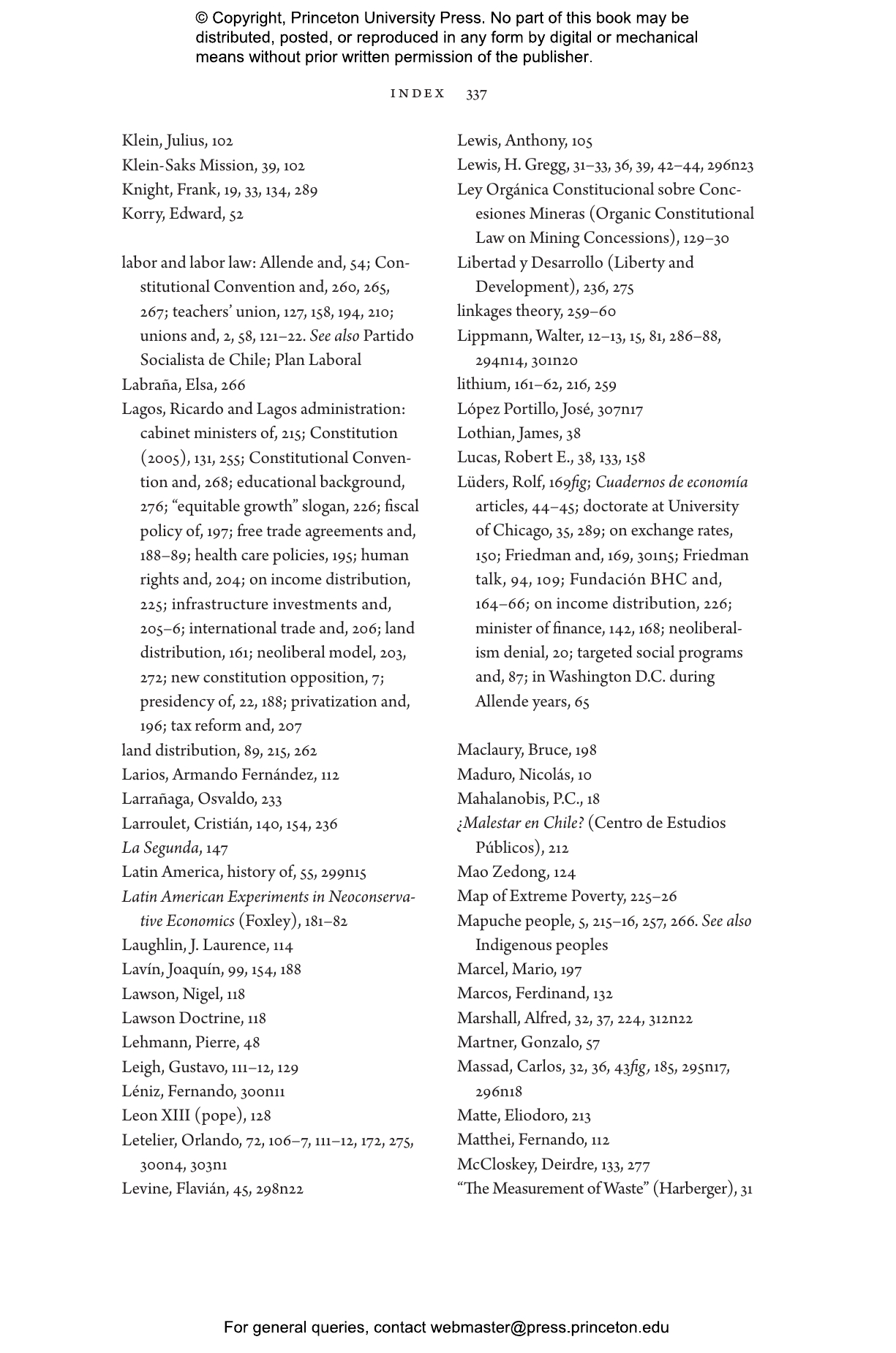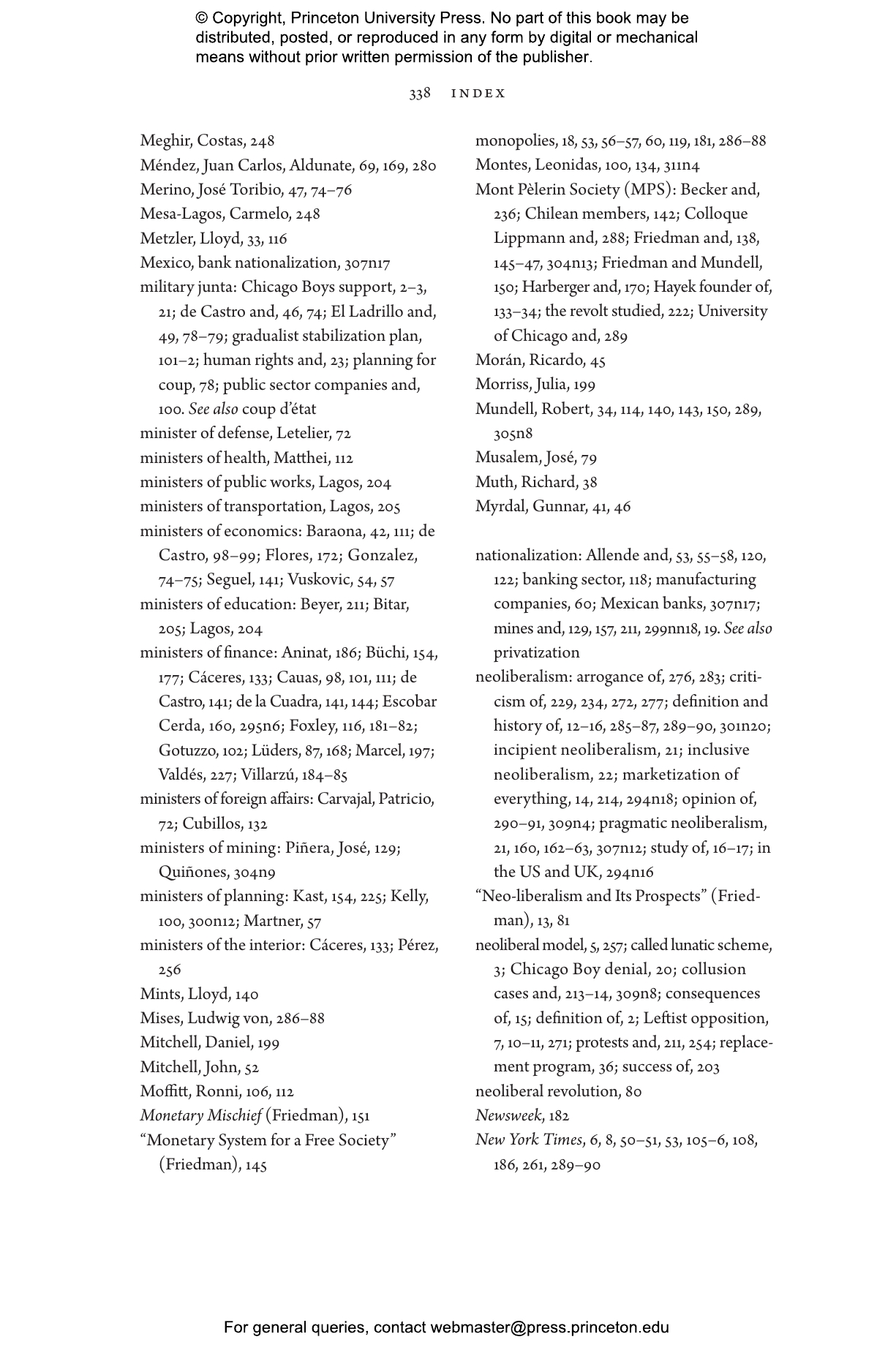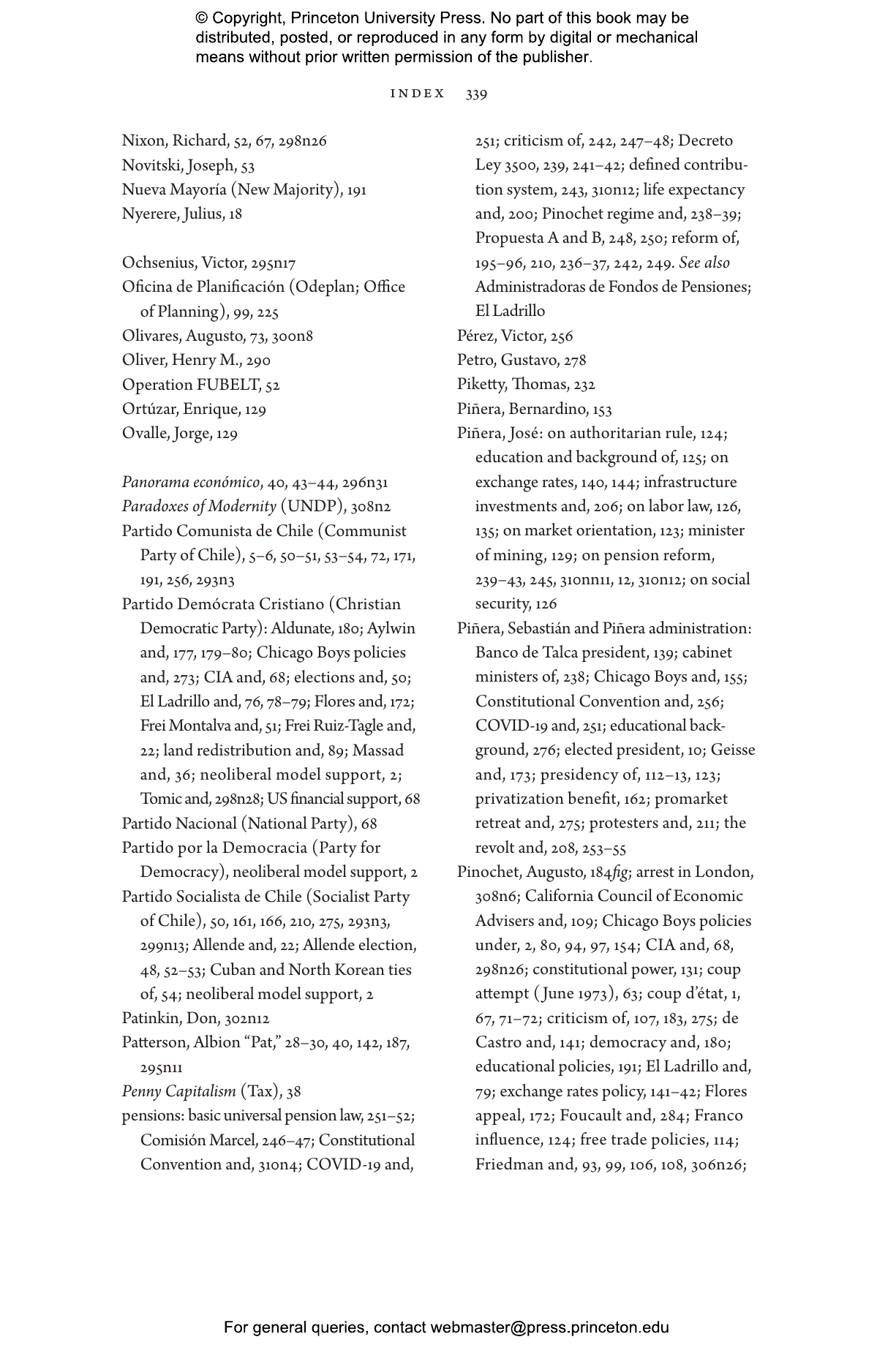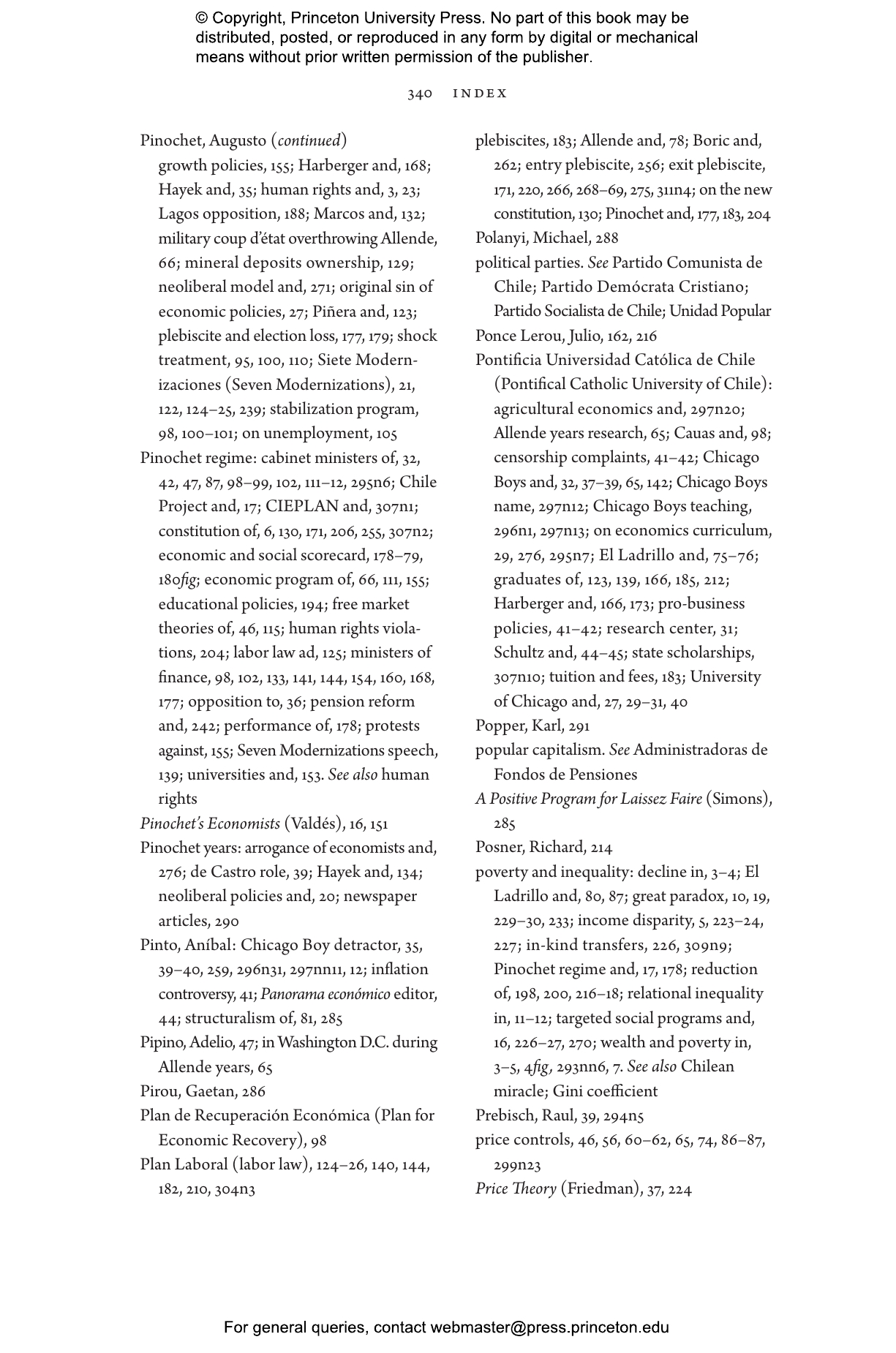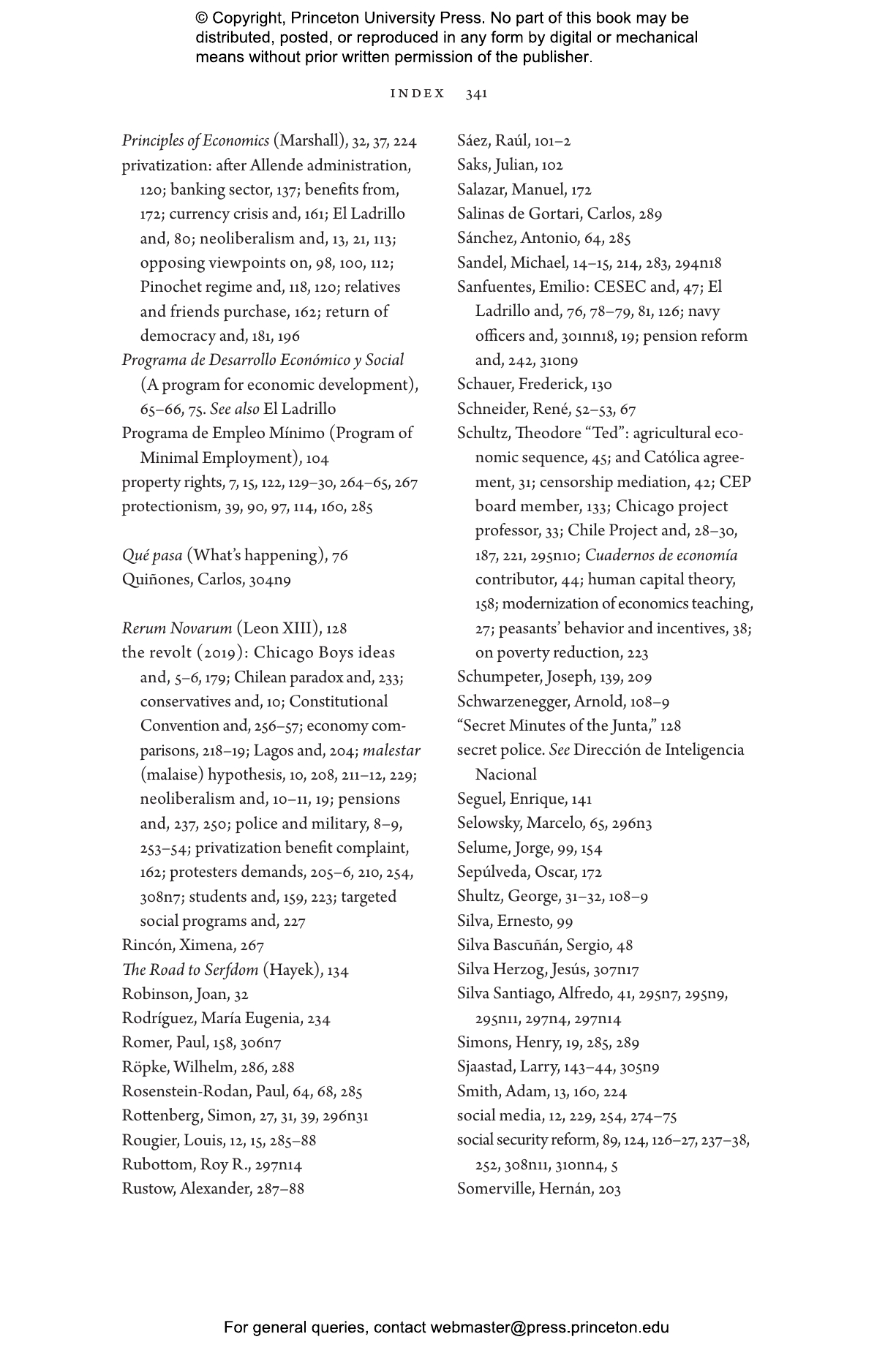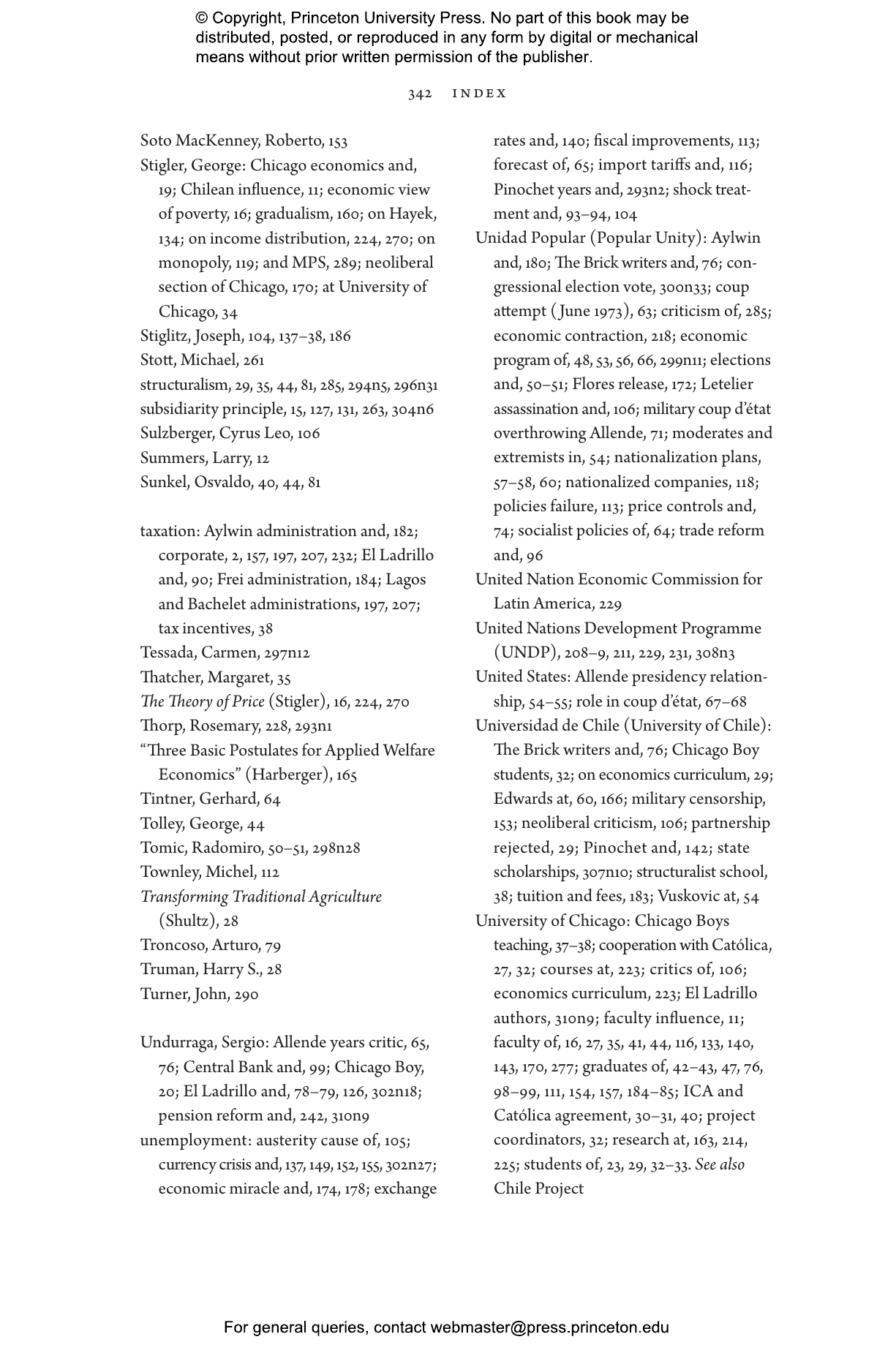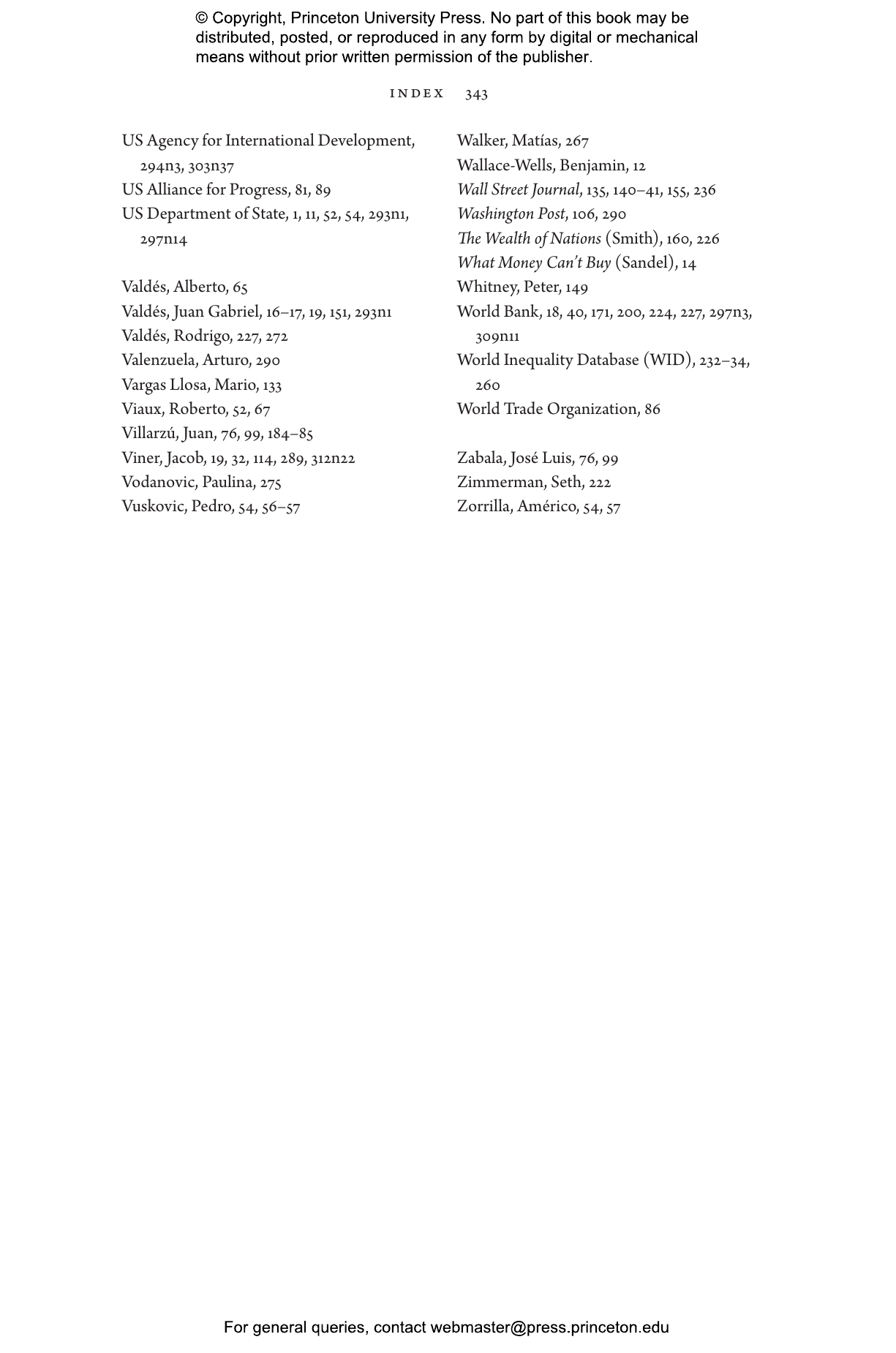In The Chile Project, Sebastian Edwards tells the remarkable story of how the neoliberal economic model—installed in Chile during the Pinochet dictatorship and deepened during three decades of left-of-center governments—came to an end in 2021, when Gabriel Boric, a young former student activist, was elected president, vowing that “If Chile was the cradle of neoliberalism, it will also be its grave.” More than a story about one Latin American country, The Chile Project is a behind-the-scenes history of the spread and consequences of the free-market thinking that dominated economic policymaking around the world in the second half of the twentieth century—but is now on the retreat.
In 1955, the U.S. State Department launched the “Chile Project” to train Chilean economists at the University of Chicago, home of the libertarian Milton Friedman. After General Augusto Pinochet overthrew socialist president Salvador Allende in 1973, Chile’s “Chicago Boys” implemented the purest neoliberal model in the world for the next seventeen years, undertaking a sweeping package of privatization and deregulation, creating a modern capitalist economy, and sparking talk of a “Chilean miracle.” But under the veneer of success, a profound dissatisfaction with the vast inequalities caused by neoliberalism was growing. In 2019, protests erupted throughout the country, and in 2022 Boric began his presidency with a clear mandate: to end neoliberalismo.
In telling the fascinating story of the Chicago Boys and Chile’s free-market revolution, The Chile Project provides an important new perspective on the history of neoliberalism and its global decline today.
Awards and Recognition
- A Financial Times Best Book of the Year: Economics
- A Marginal Revolution Best Non-Fiction Book
"An excellent book. . . . This is the only book on this topic where I feel I am finally getting to the bottom of what happened. . . . Milton Friedman’s famed visit really was quite modest, contrary to what you sometimes hear. Nonetheless he was so persuasive he really did convince Pinochet to proceed with the shock therapy version of reform. . . . Strongly recommended, one of the must-reads of the year."—Tyler Cowen, Marginal Revolution
"A fascinating insider intellectual history of the policies and personalities behind Chile’s economic development in recent decades."—Richard Feinberg, Foreign Affairs
"[An] absorbing, mystifying tale of how neoliberal economics took root in the Southern Hemisphere only to be uprooted."—Michael M. Rosen, National Review
"The book presents a magnificent account of Chilean economic policies from the 1950s to the present day, and it will be an invaluable source for students of economic policy."—David Gallagher, Times Literary Supplement
"[Edwards] is one of those rare economists who can explain economic policy in simple and understandable language. He is a good writer and has an eye for a telling anecdote. . . .The Chile Project offers a cautionary tale for policymakers of all political and ideological stripes about the perils of unintended consequences."—Bruce Caldwell, Literary Review
"Detailed yet accessible. . . . A closely argued study of the merits and demerits of free market economics in action."—Kirkus Reviews
"Meticulous. . . . Marked by Edwards’s firm grasp of regional politics and lucid explanations of economic theory, this is a valuable primer on a complex subject."—Publishers Weekly
"A book that has been badly needed."—David R. Henderson, Financial and Economic Review
"Edwards tells this complex and controversial story superbly."—Martin Wolf, Financial Times
"Edwards has provided a comprehensive book on a complicated period of Chilean economic history. I recommend it to any interested in Chile, economic history in a broad sense, and for those who are looking for an unbiased view of the Chicago Boys and their influence."—Maximilian Magnacca, The Society of Professional Economists
"An outstanding review of the rise and fall of the pro-market consensus and the neoliberal project undertaken in Chile since the 1970s. . . .The book’s prose is so well-crafted, it reads almost as fluidly as a novel."—Pablo Paniagua, Public Choice
“The Chile Project is wonderful. I haven’t enjoyed—or learned so much—from a book in a long time. It does a wonderful job of analyzing something many of us are thinking about, the flaws in mainstream economics, and doing it in the specific context of Chile, and with deep personal knowledge of both the Chicago and Chilean economists who were involved in the story.”—Angus Deaton, Nobel Prize–winning economist and coauthor of the New York Times bestseller Deaths of Despair
“The Chile Project is a gripping account by a fine writer and economist of how economists and their ideas have influenced, or tried to influence, political and economic arrangements in Chile starting in the early 1970s, continuing until today. Tensions between liberalism and authority, and between equalities and efficiencies, run through the story. I couldn’t put this book down. The story fascinates and bothers me.”—Thomas J. Sargent, Nobel Prize–winning economist
“The Chile Project is an eye-opener. I lived through the Chicago end of the story, but Sebastian Edwards illuminates the whole episode. I knew all the actors but didn’t know the play until I read the book. It is an excellent book.”—James J. Heckman, Nobel Prize–winning economist
“A fascinating account of how the ‘Chicago Boys’ came to dominate Chilean policymaking under Pinochet and beyond. Edwards doesn’t hide his own sympathies for their ideas. But even critics of Chicago-style economics will benefit from this finely detailed story about how once-outlandish ideas, scorned by politicians and businesspeople alike, became the established norm.”—Dani Rodrik, author of Straight Talk on Trade
"In this well-written, deeply researched, and novel history, Edwards brilliantly shows how free-market economics first won and then lost the war of political ideas."—John H. Cochrane, author of The Fiscal Theory of the Price Level
“Liberalism is the strange modern notion that no one should have a master, no one should be a slave to husband or state functionary. Edwards shows from the inside, with massive documentation expressed in vigorous prose, that true liberalism must always be defended rhetorically. The tragedy of Chile, and of some other neoliberalisms, is that the economists whom I and others taught in the 1970s at the University of Chicago went home and made a deal with an authoritarian devil. Imposing liberalism does not produce a culture of liberty. It must grow, as it can, in the human heart.”—Deirdre Nansen McCloskey, author of Why Liberalism Works
“The ‘Chicago Boys’—Chilean scholars trained in neoliberal economics in Chicago—are credited and blamed for everything that has gone right and wrong in their country. Sebastian Edwards trains new light on their history and shows how it illuminates everything from the dictatorship of Augusto Pinochet to the nationwide protests of 2019–2020, the election of President Gabriel Boric in 2021, and the unsuccessful constitutional referendum of 2022. A highly original window on fifty years of Chilean political and economic history.”—Barry Eichengreen, author of The Populist Temptation
“The Chile Project is outstanding, and the story it tells is filled with important lessons for the future of Latin America, the discipline of economics, and economic policymaking. An insider who writes in a lively way, Sebastian Edwards gives meticulous attention to narrative details and has a deep understanding of economics, the history of economic thinking, and Chilean history. There is no book like it.”—Charles Calomiris, coauthor of Fragile by Design
